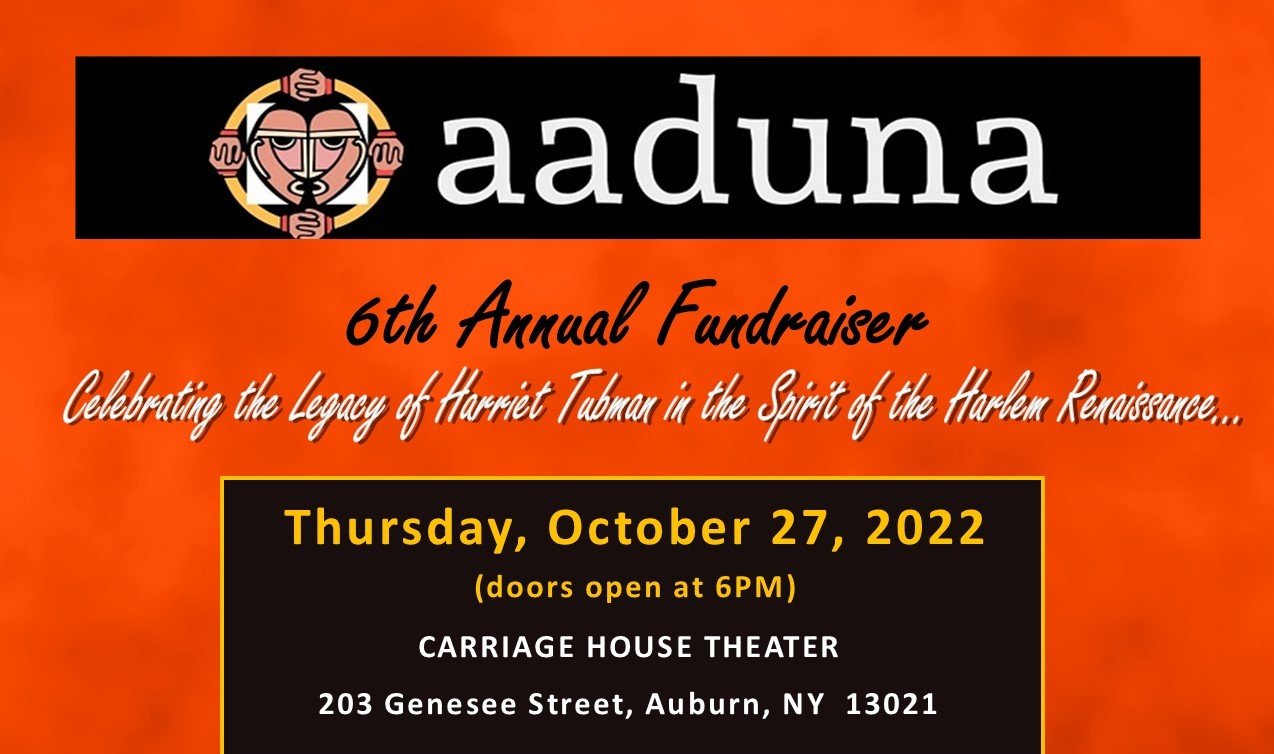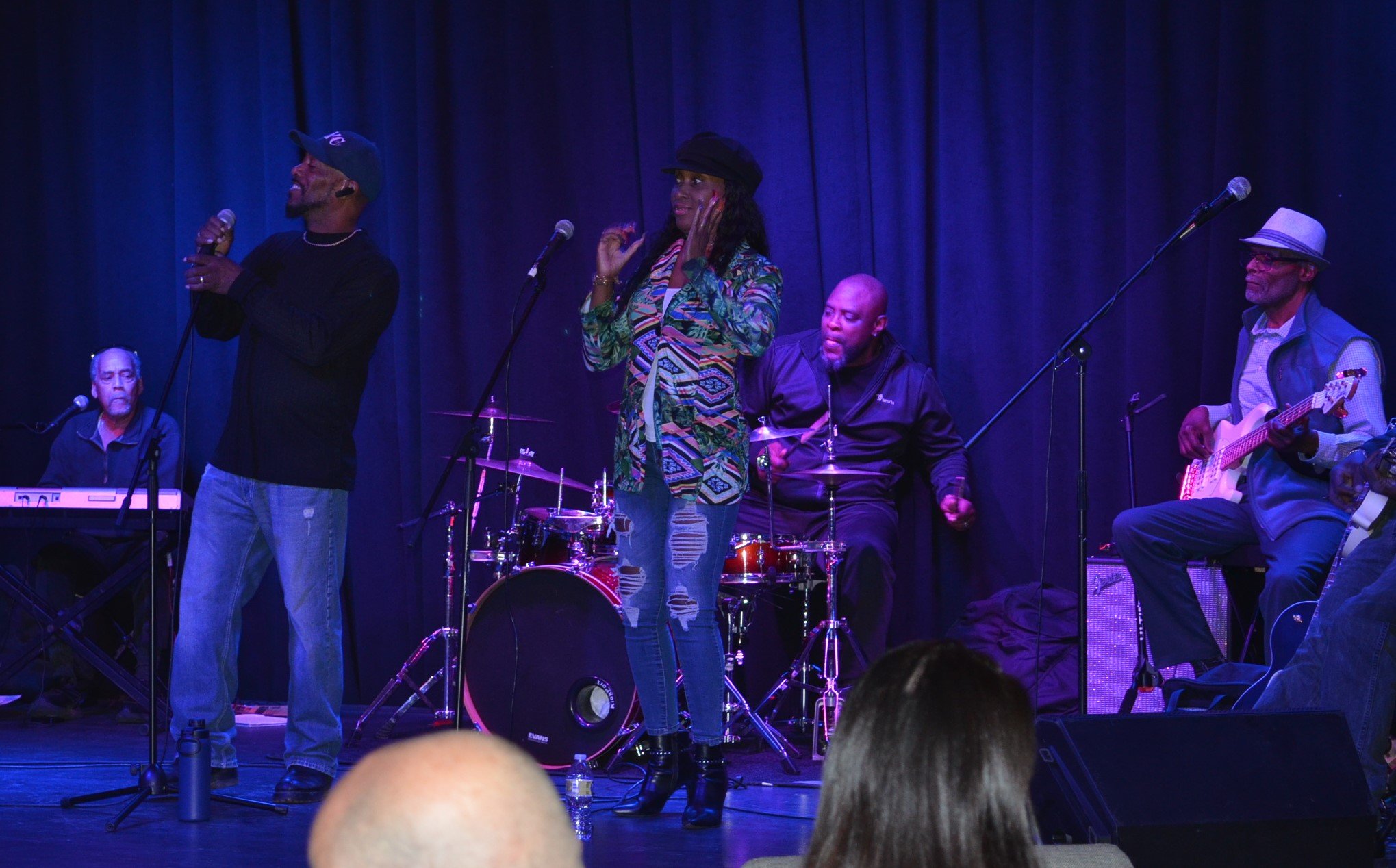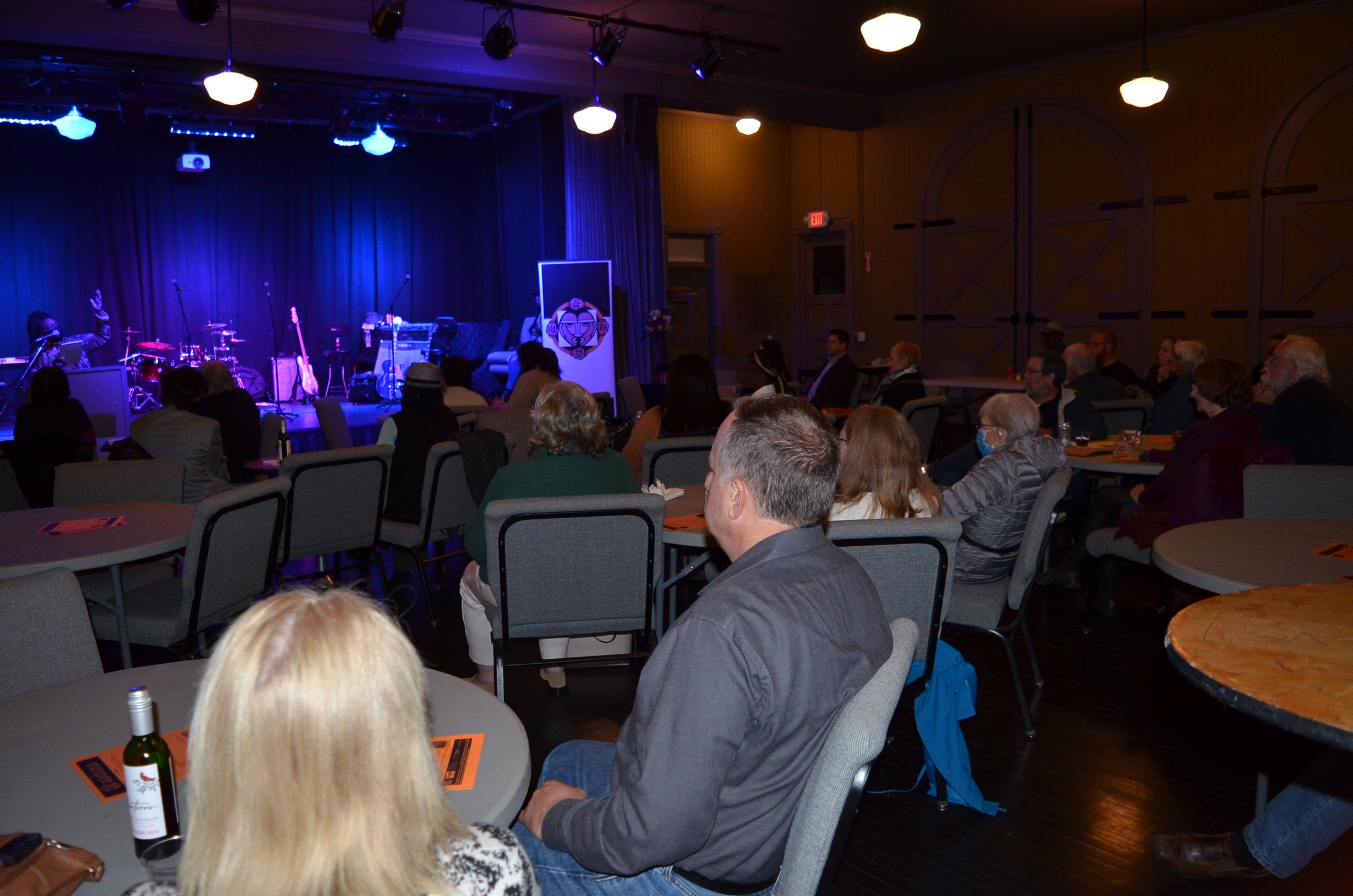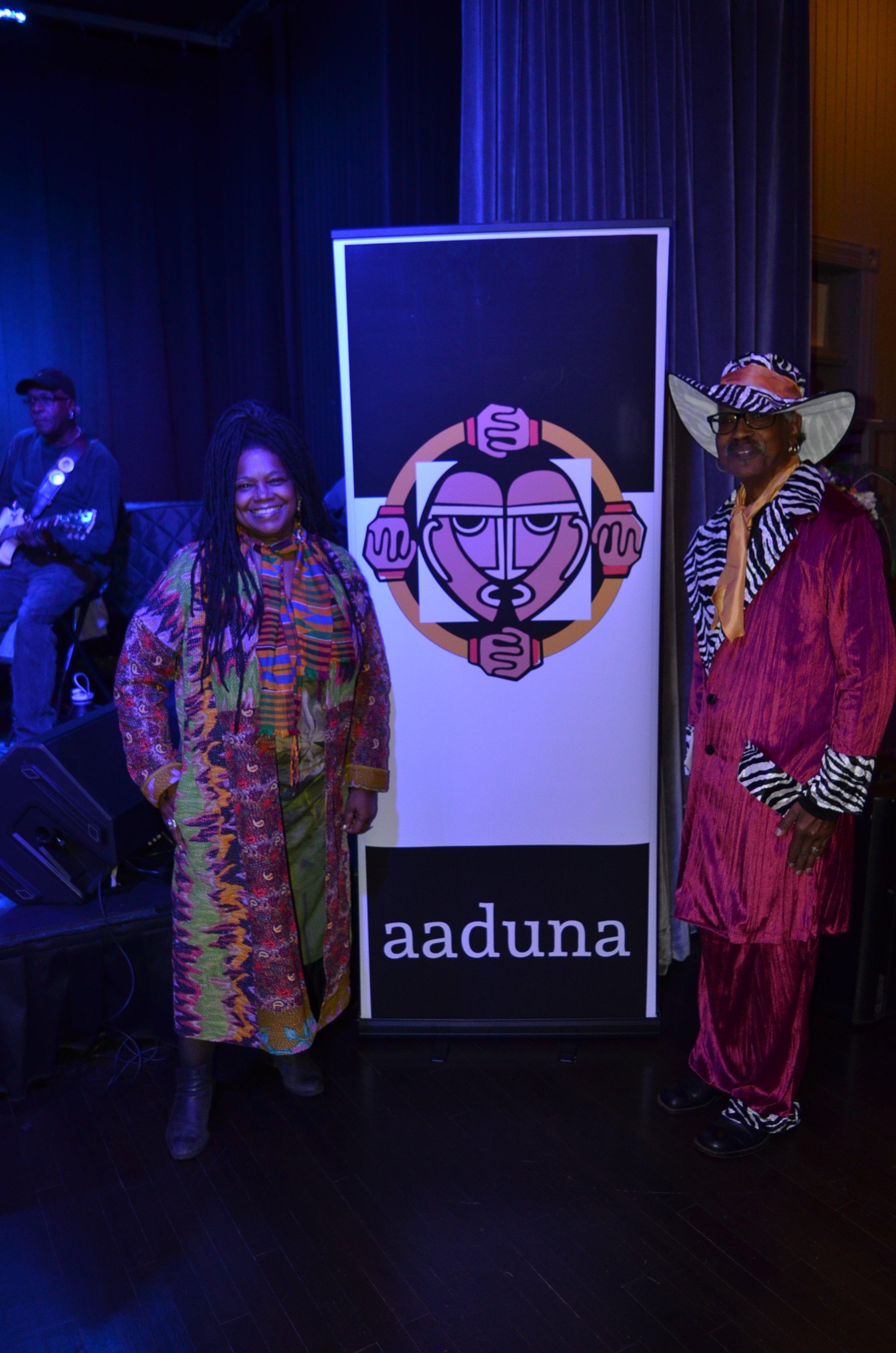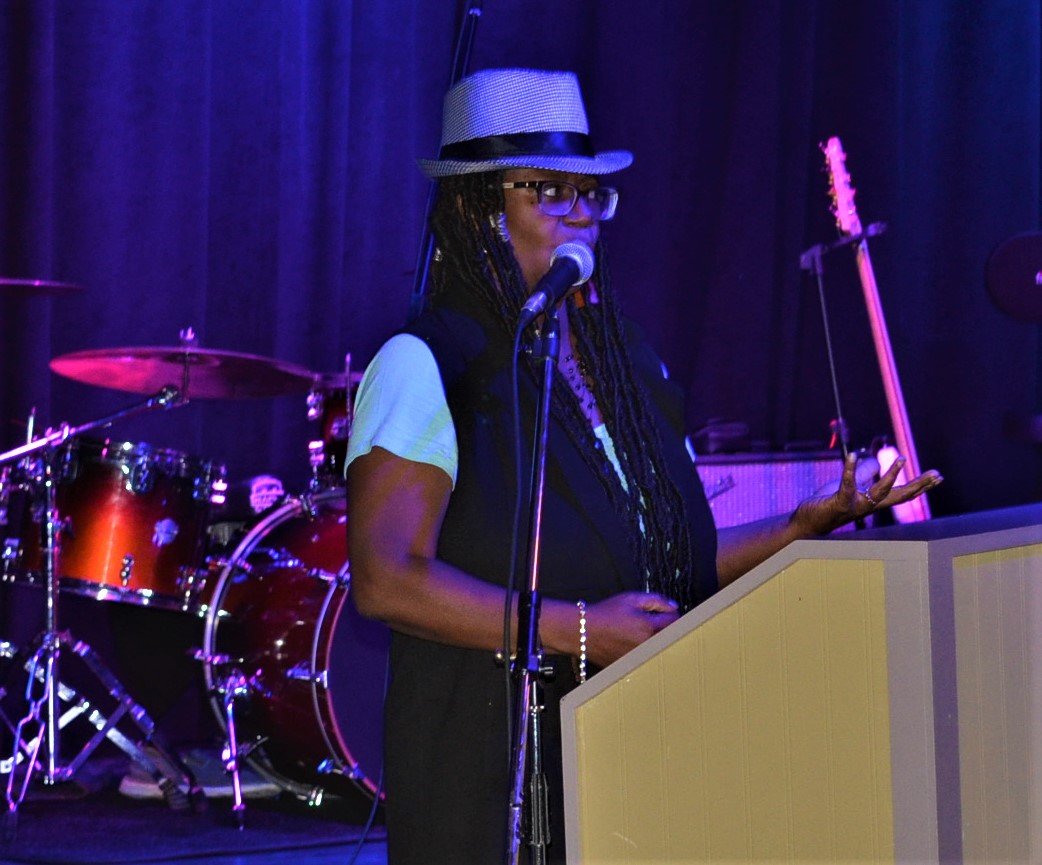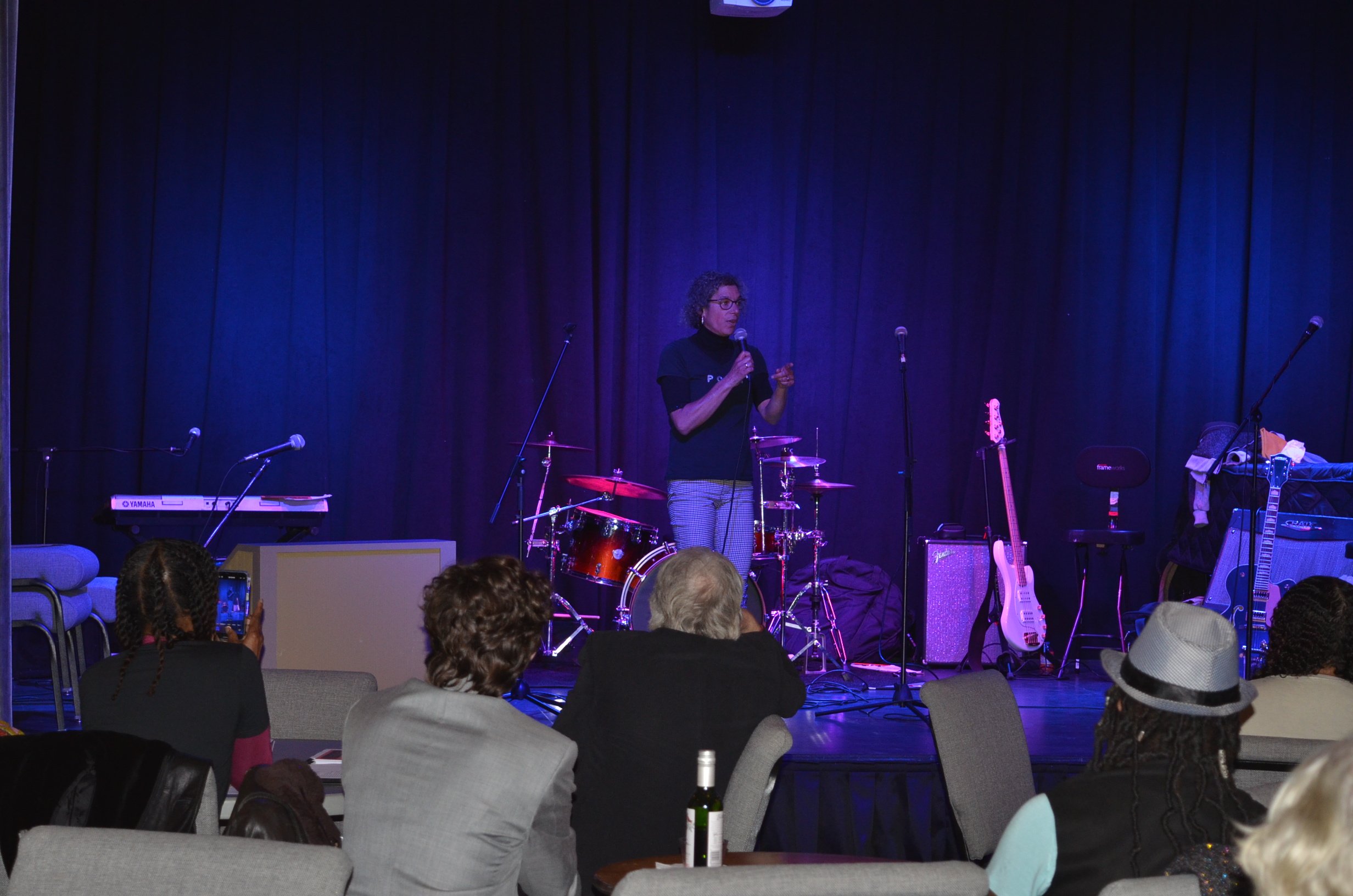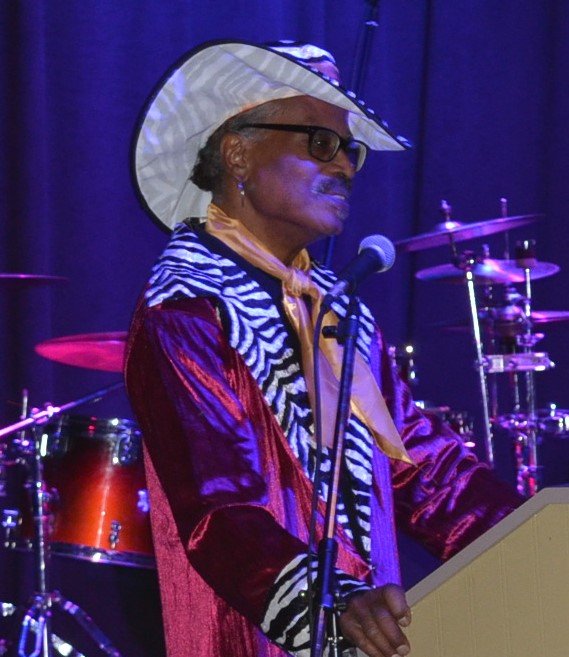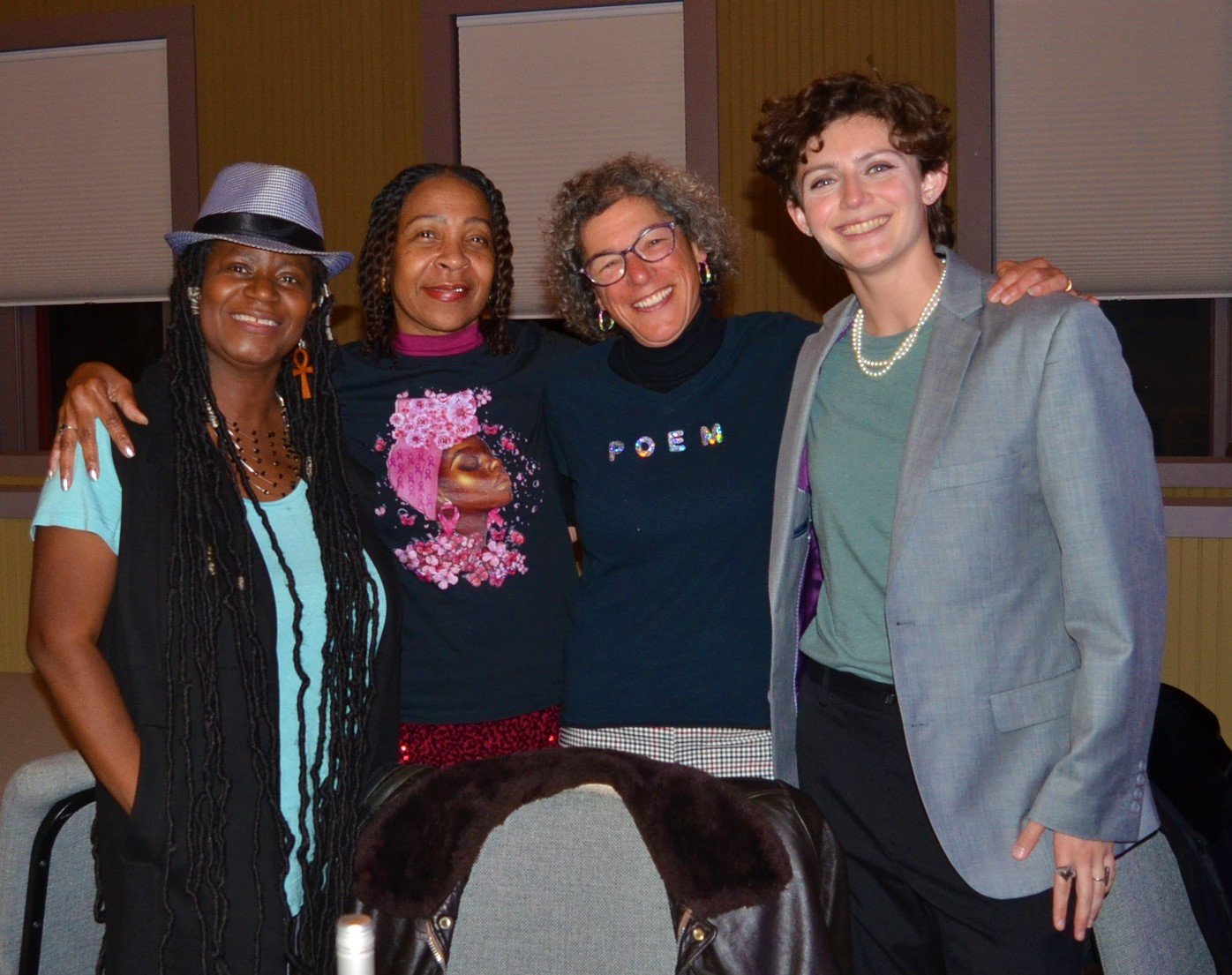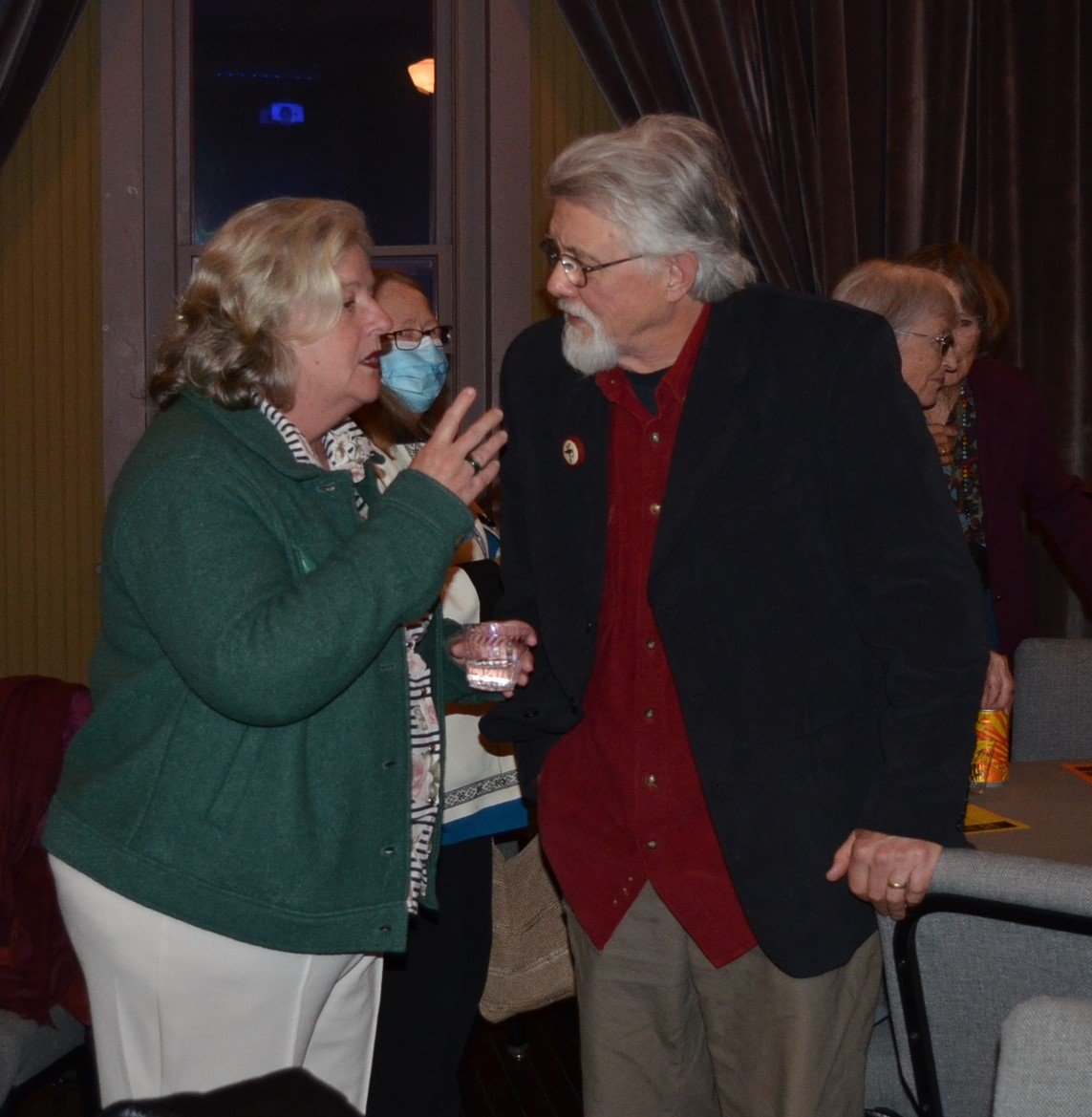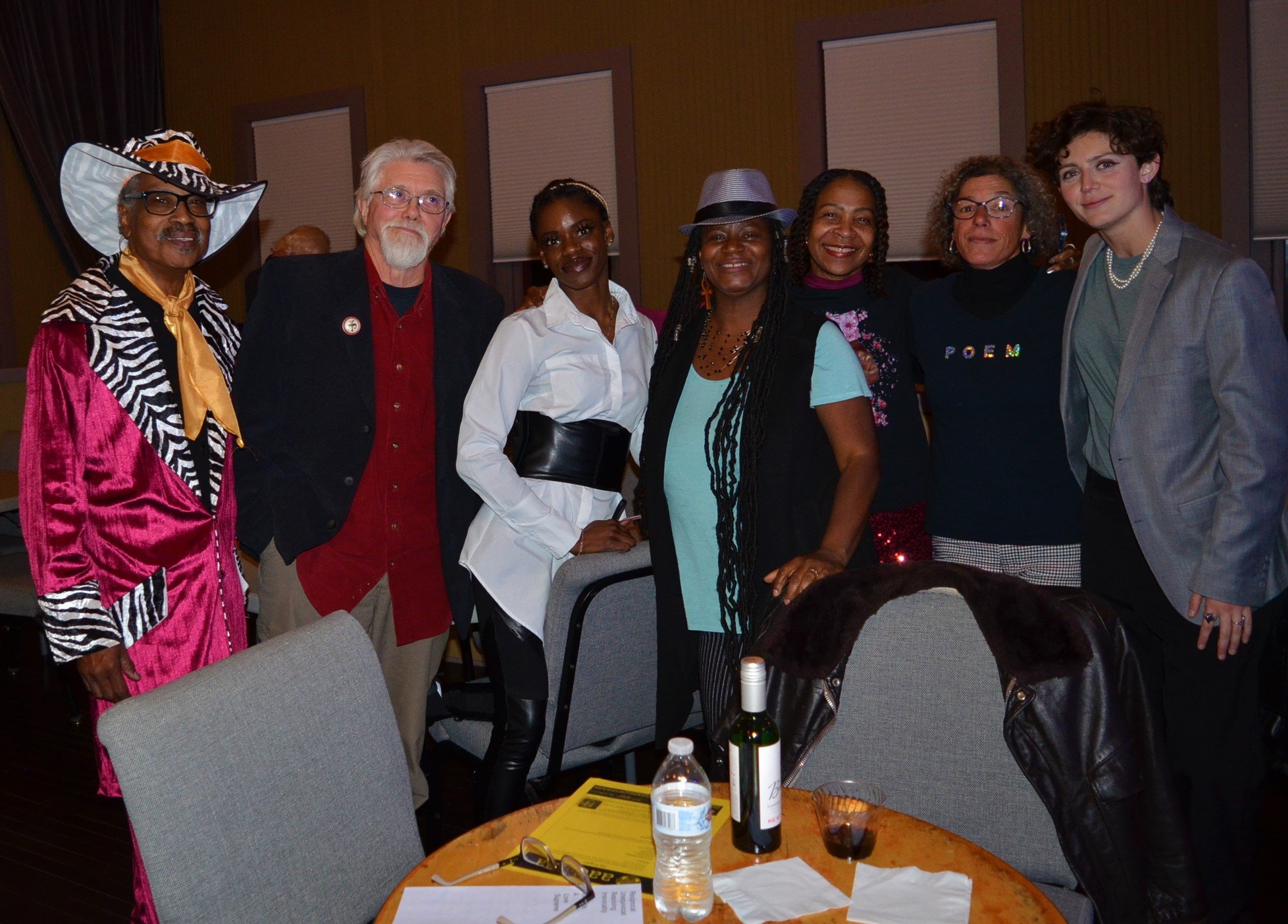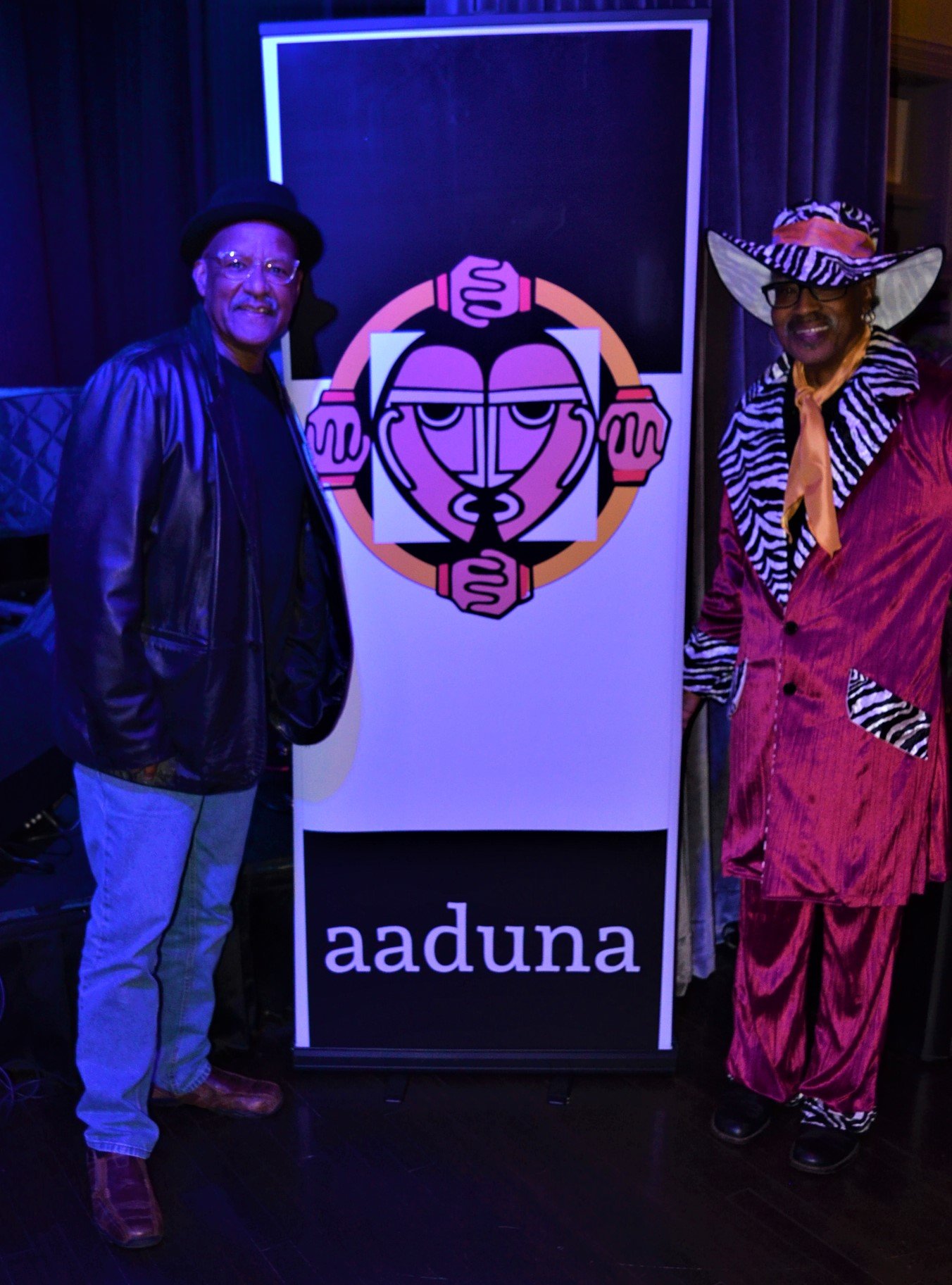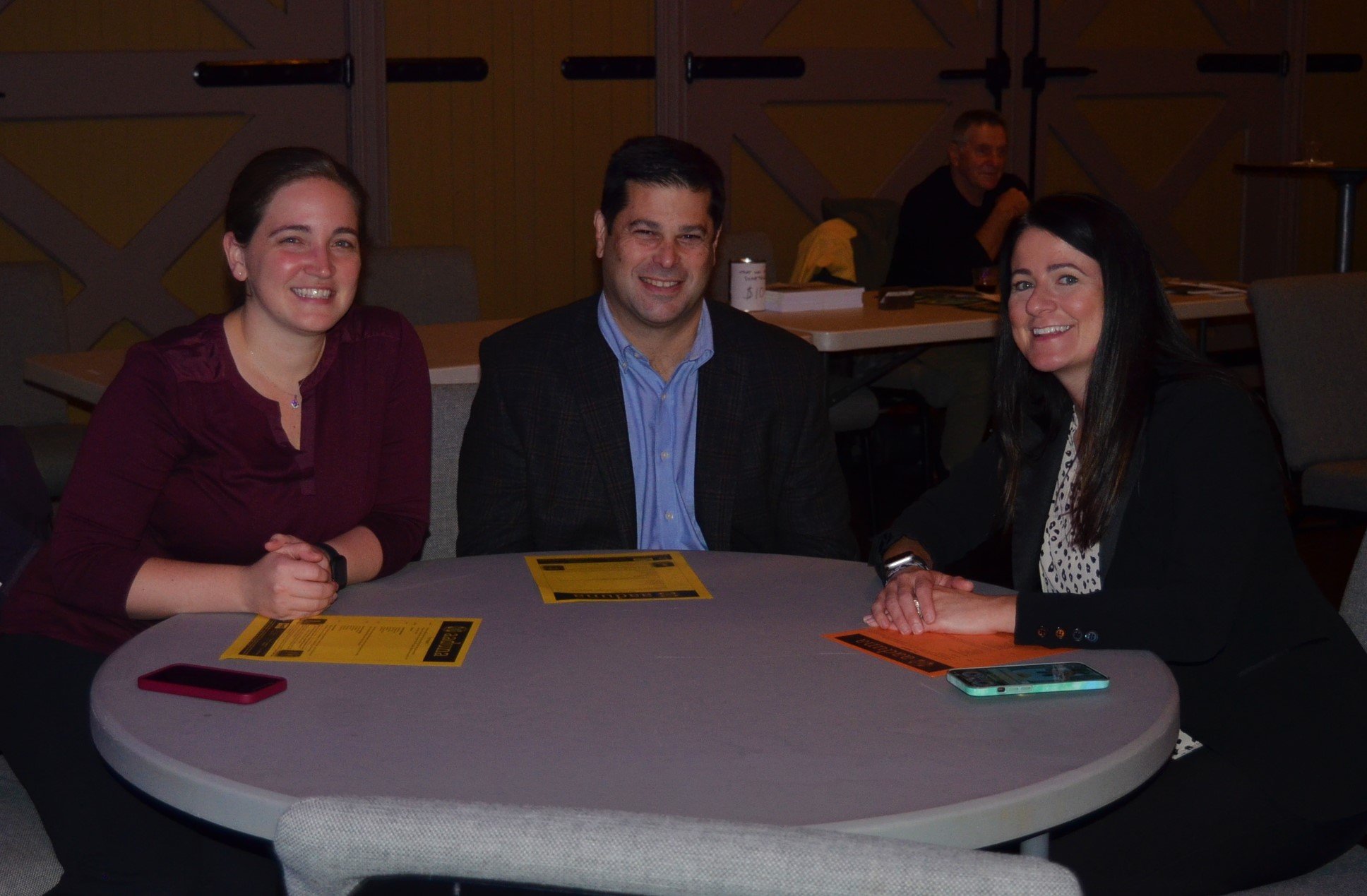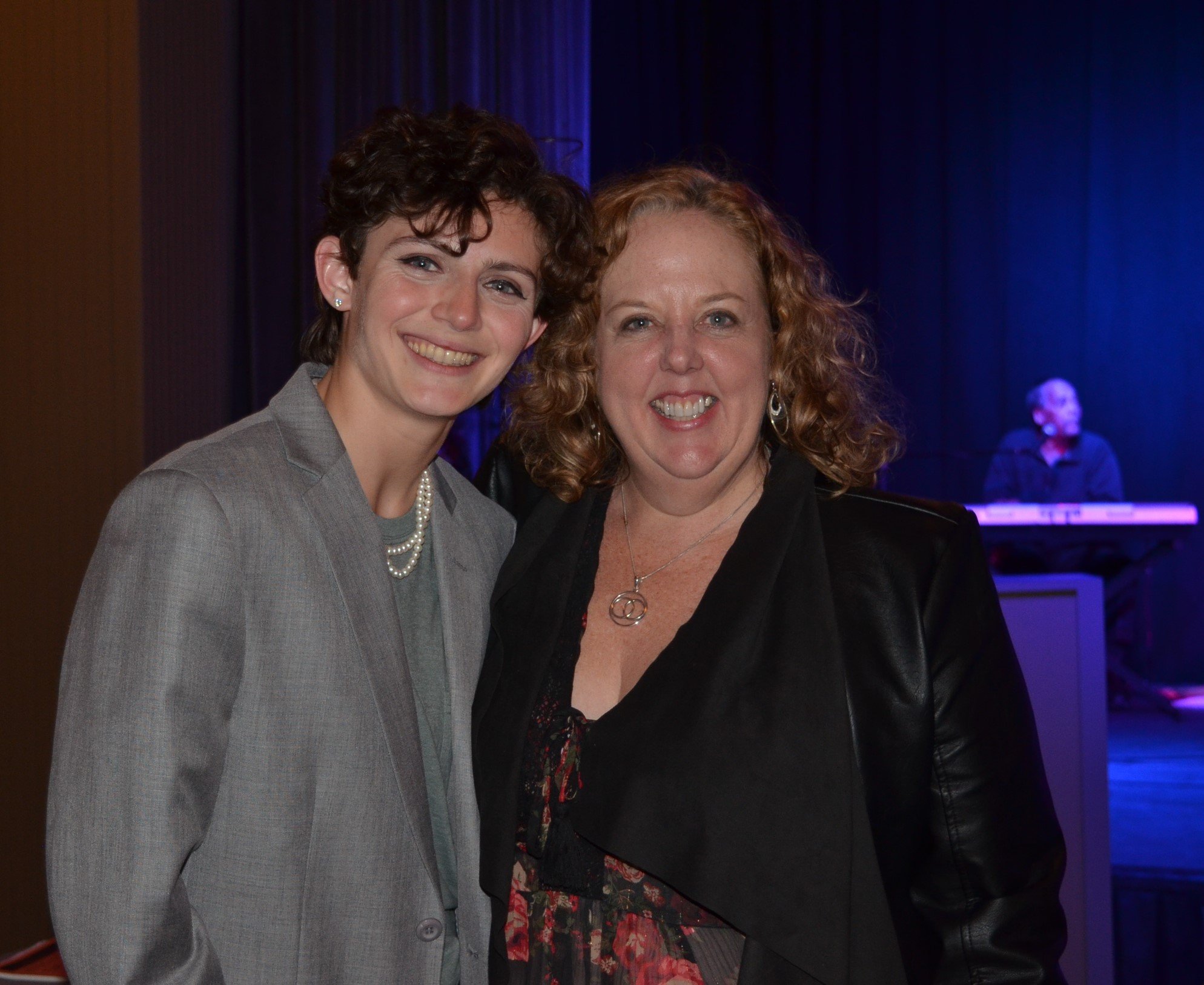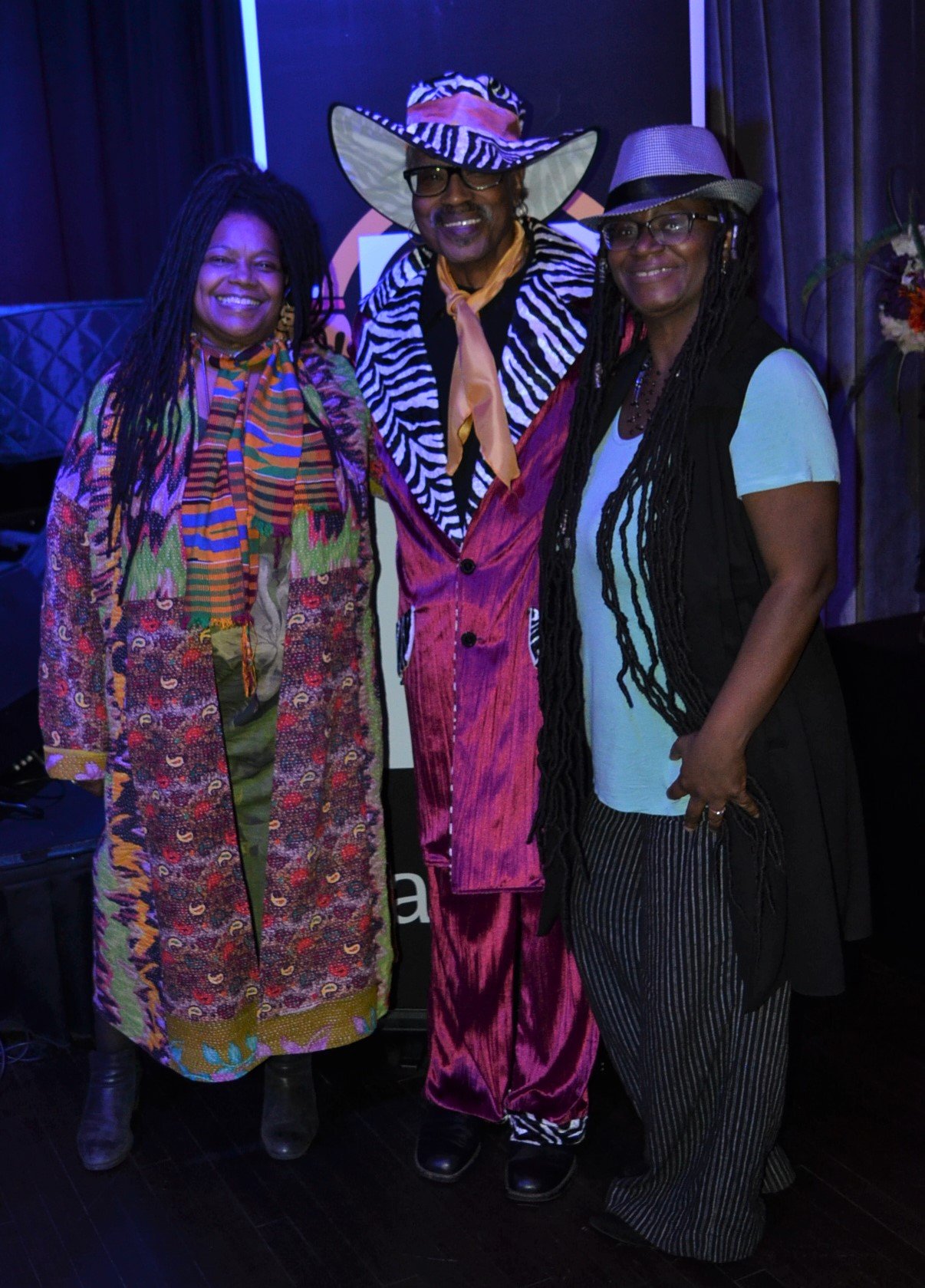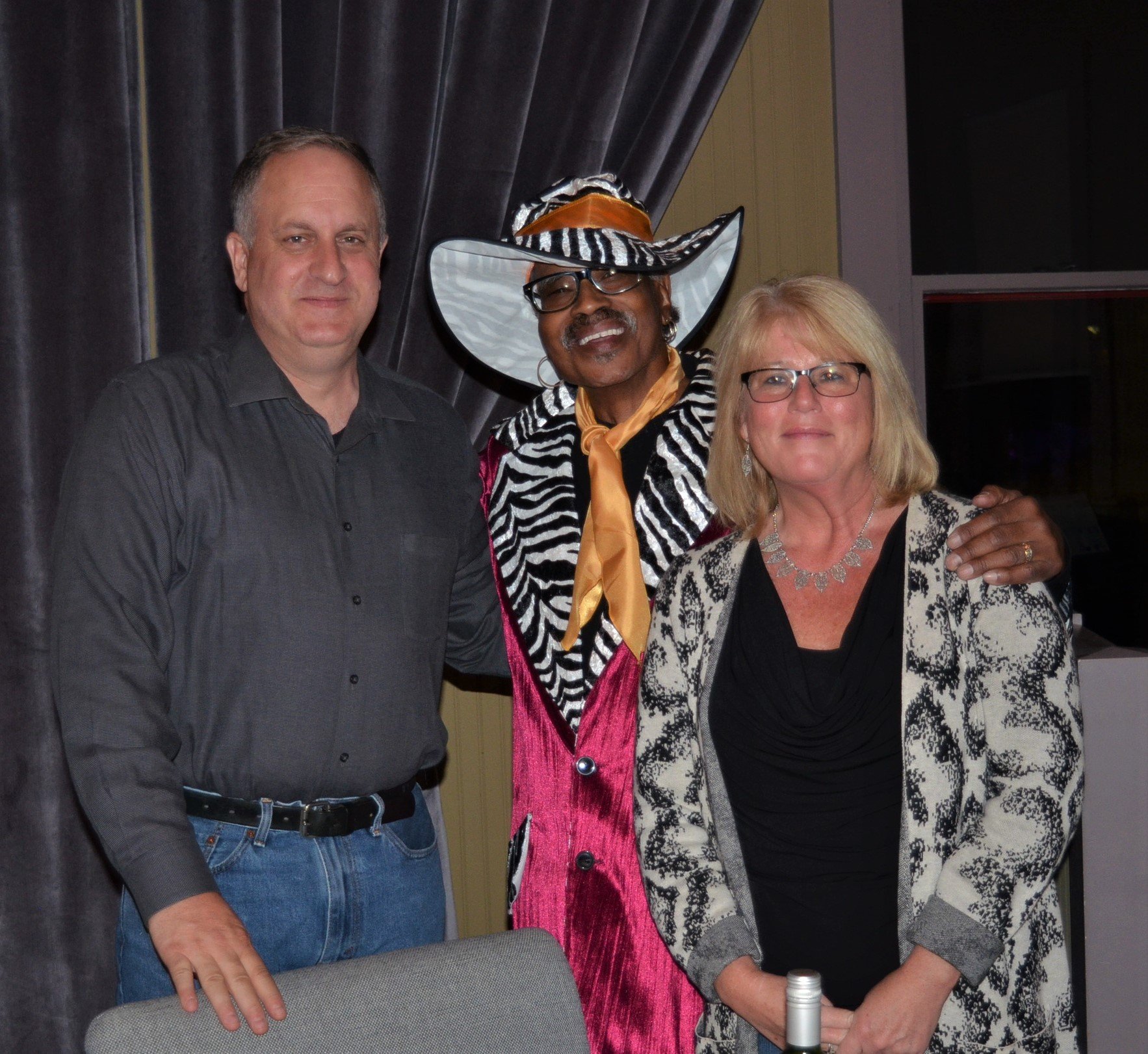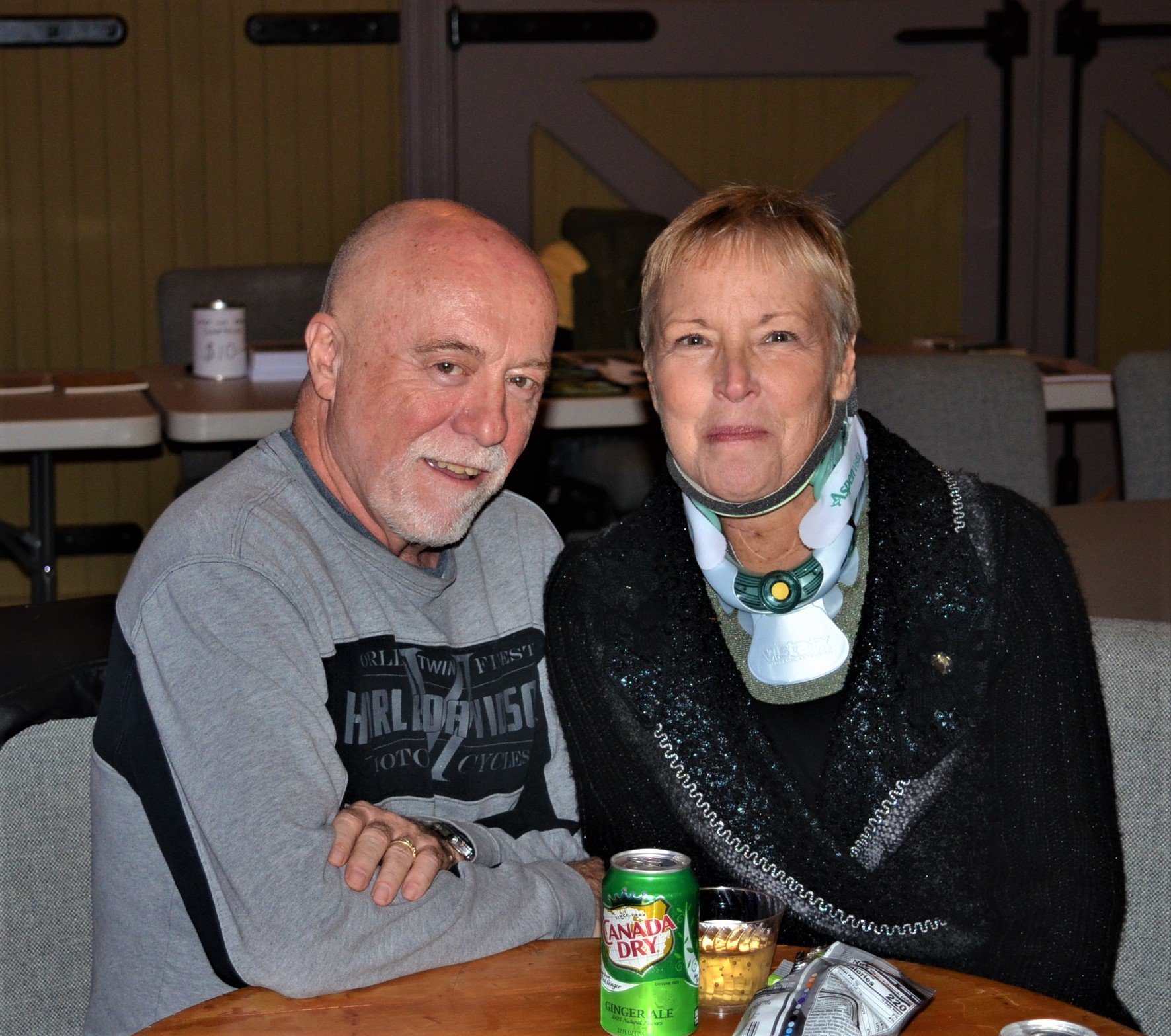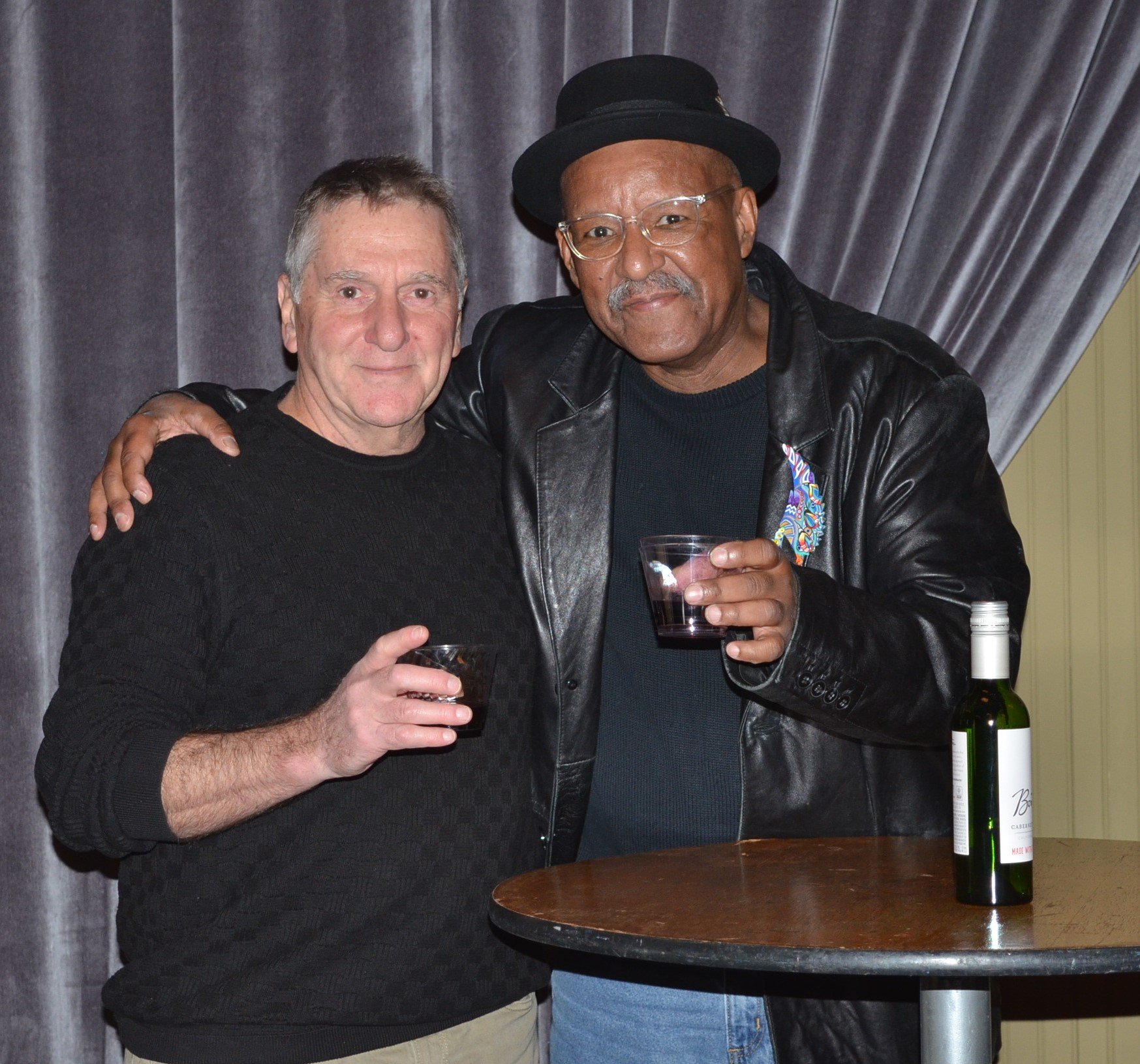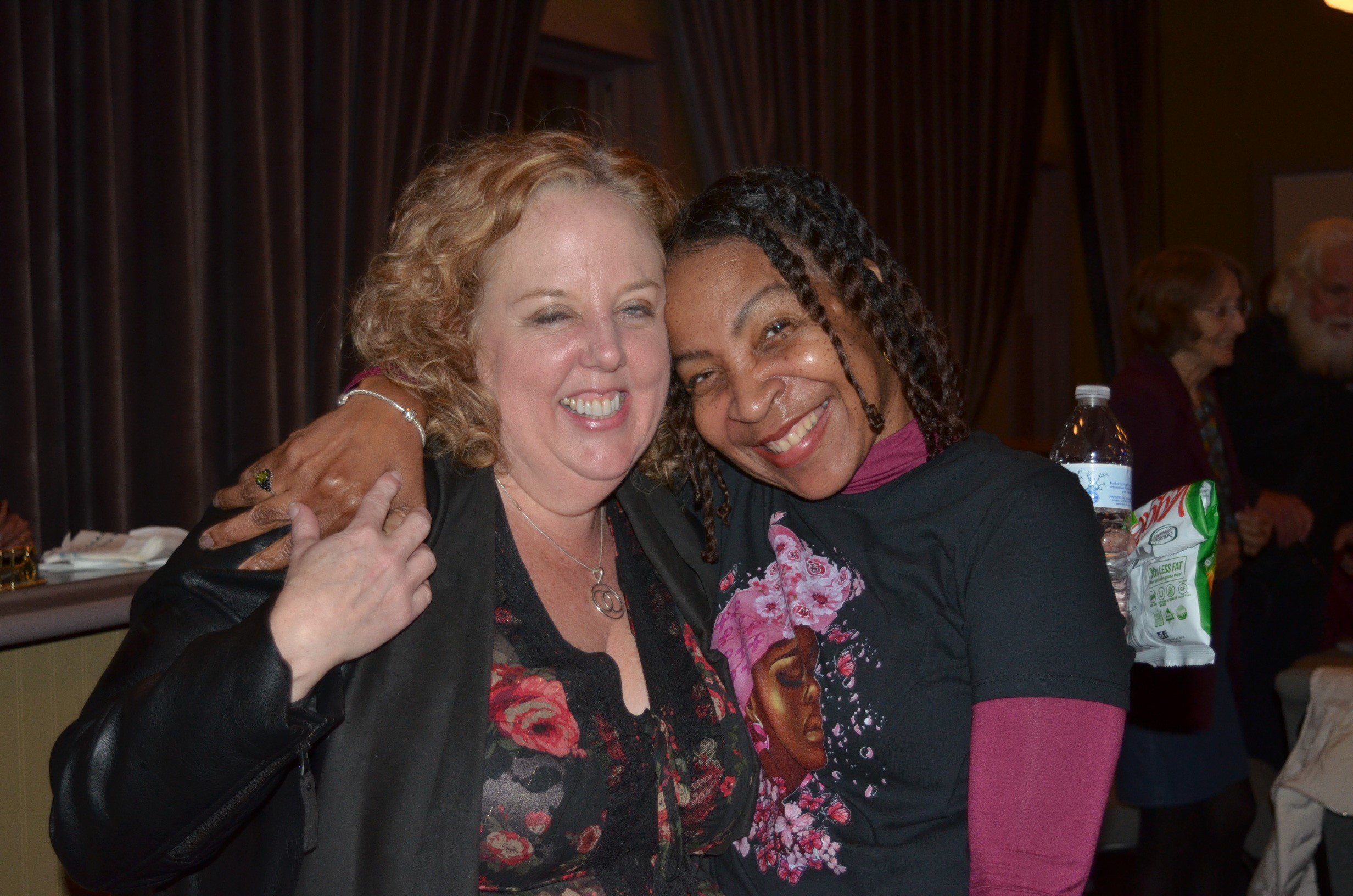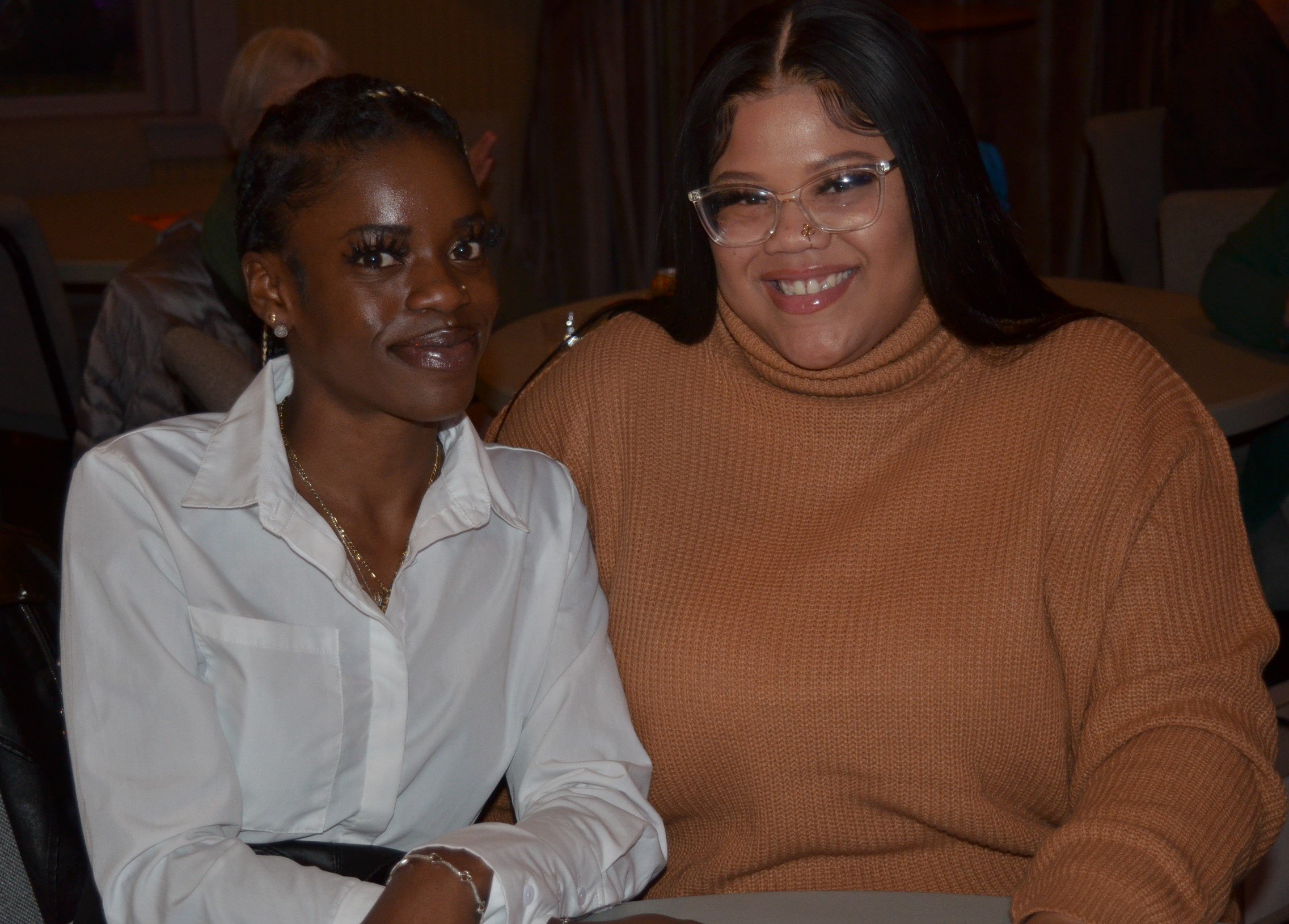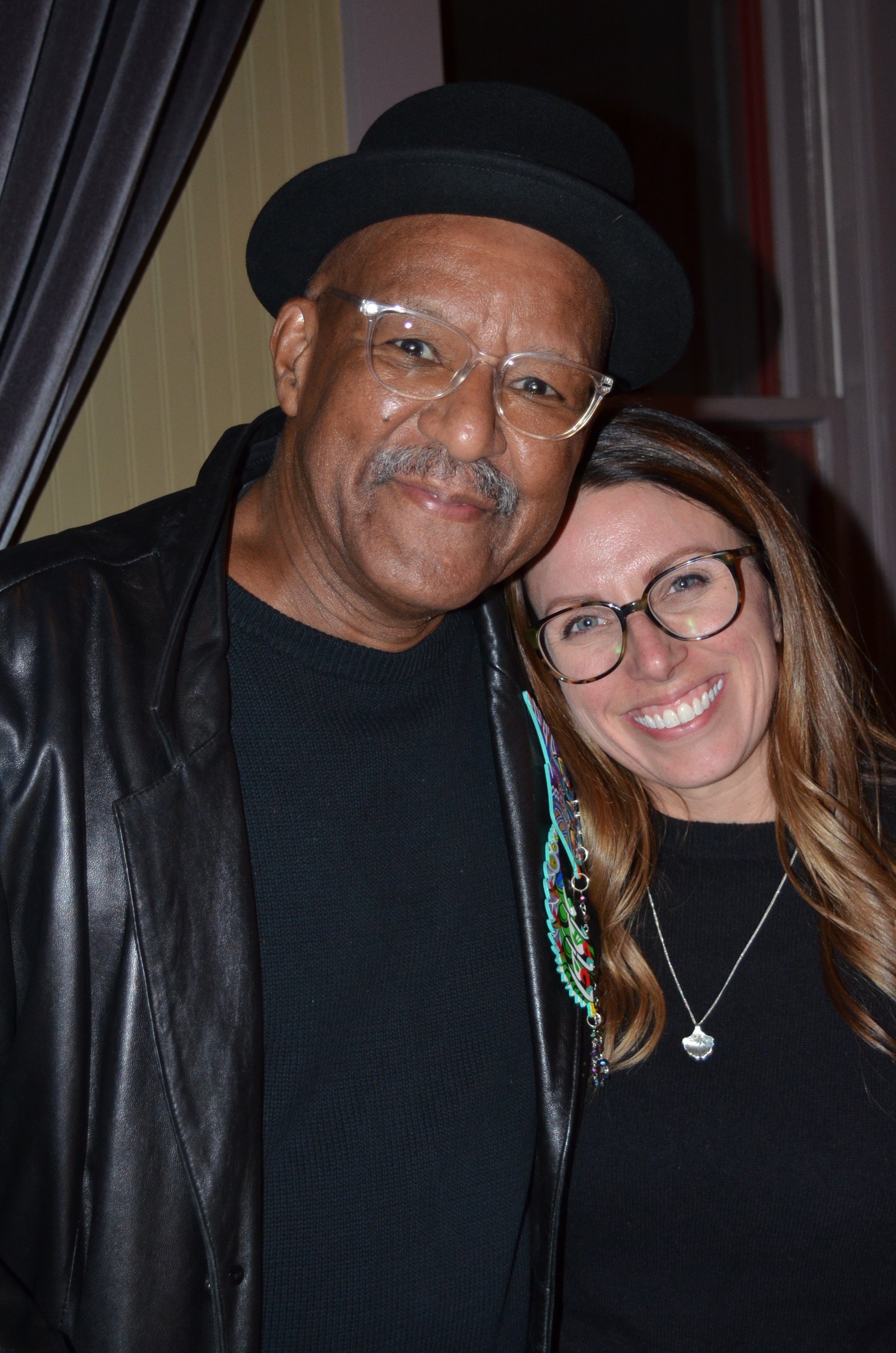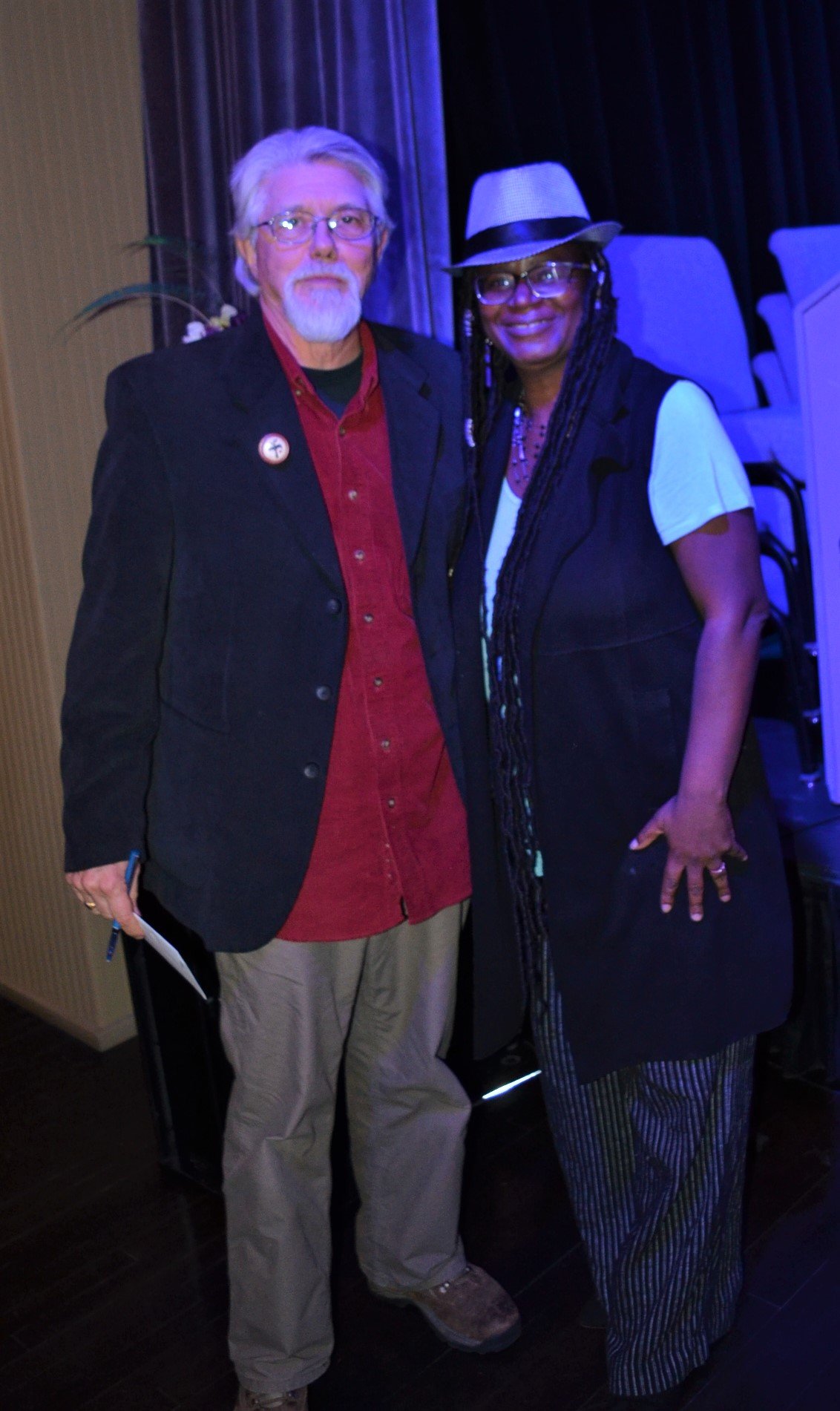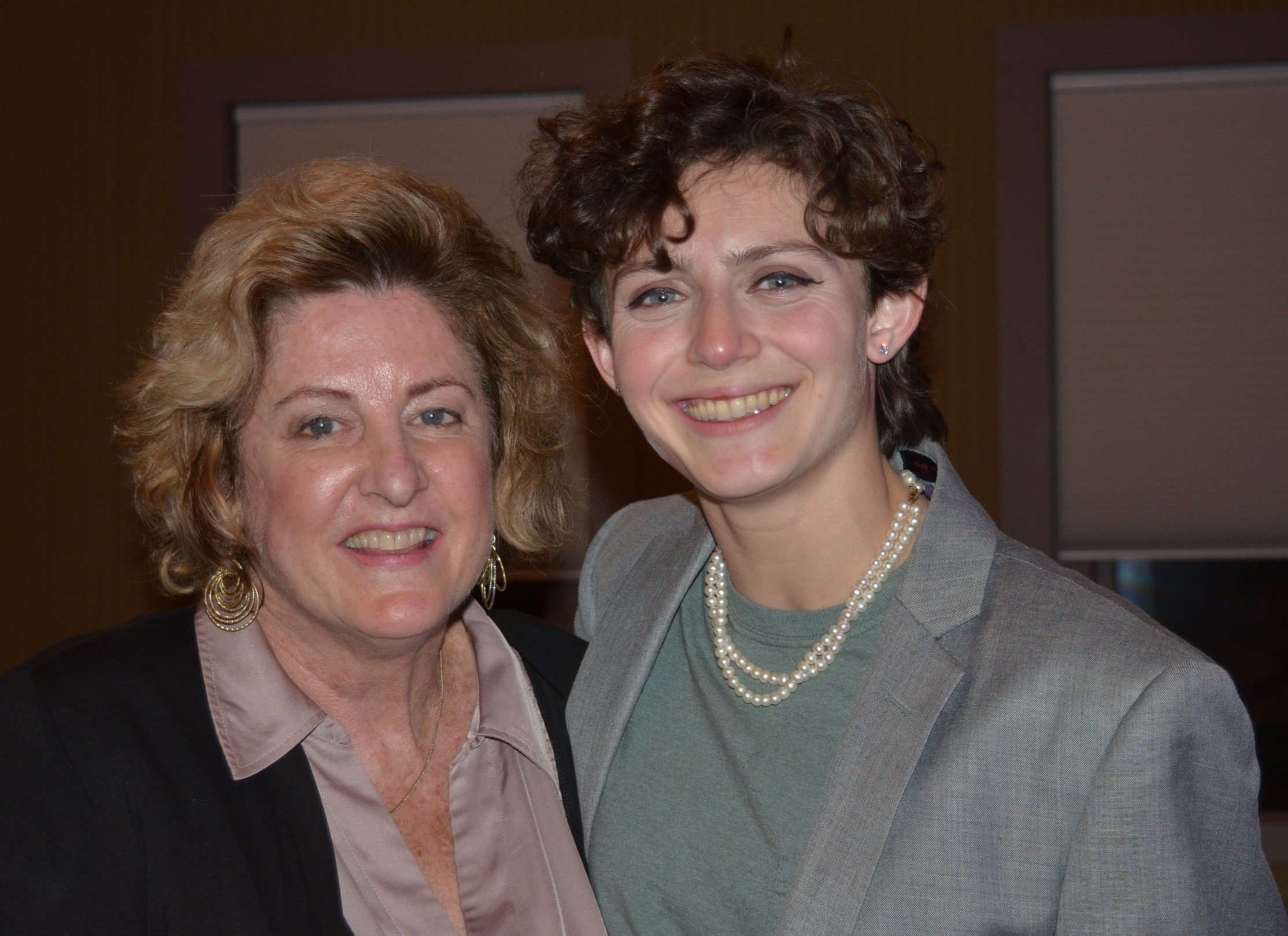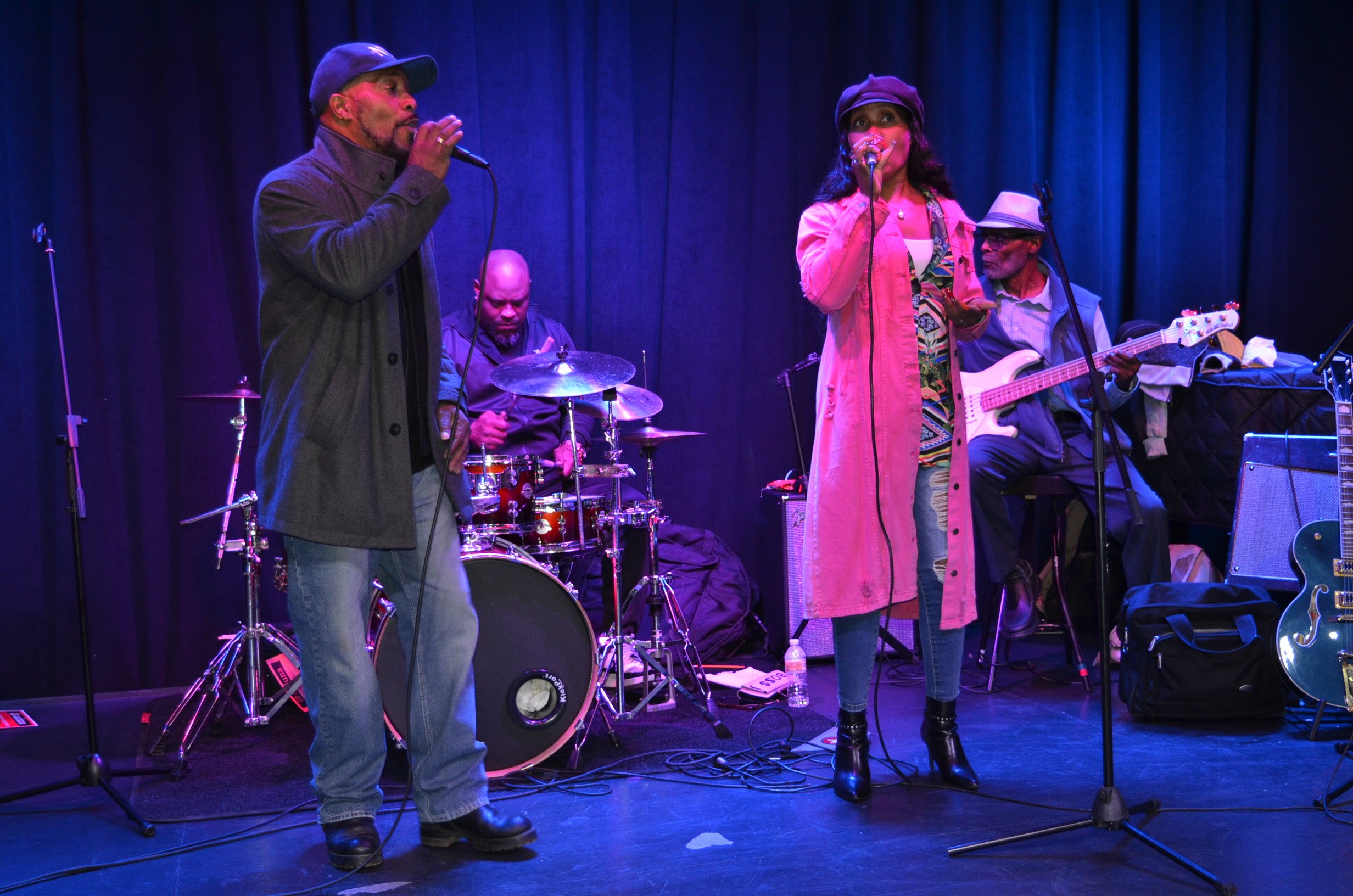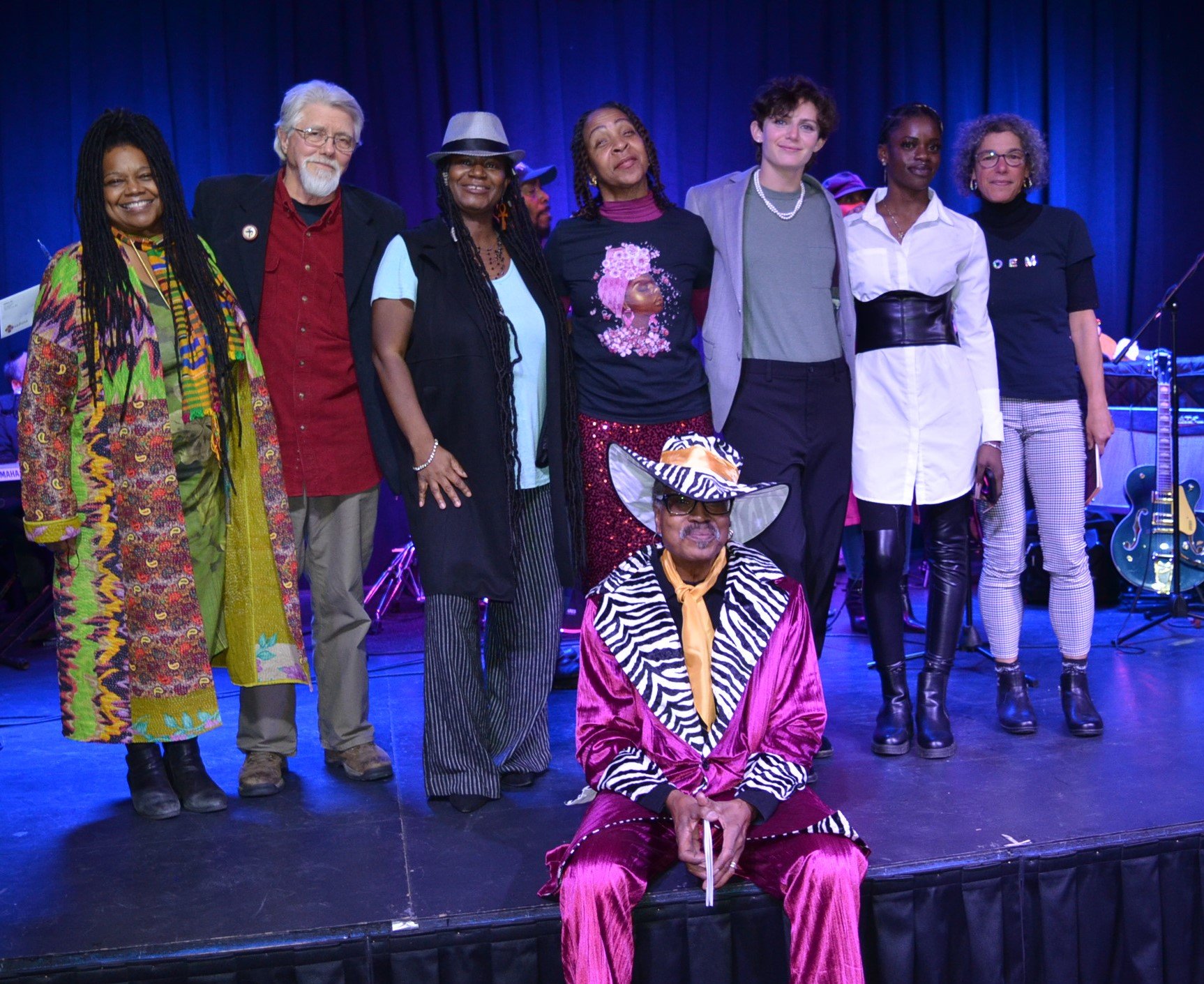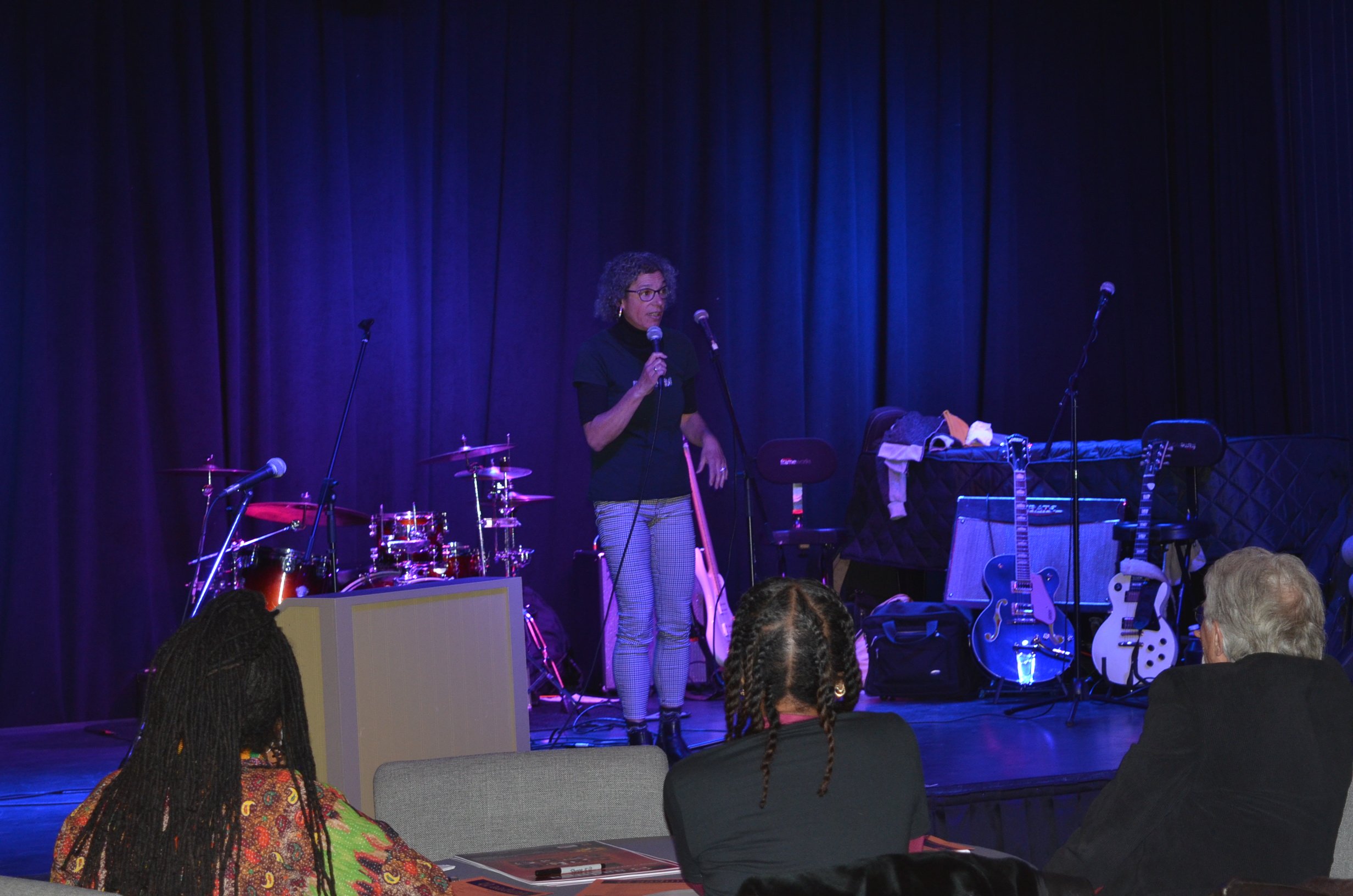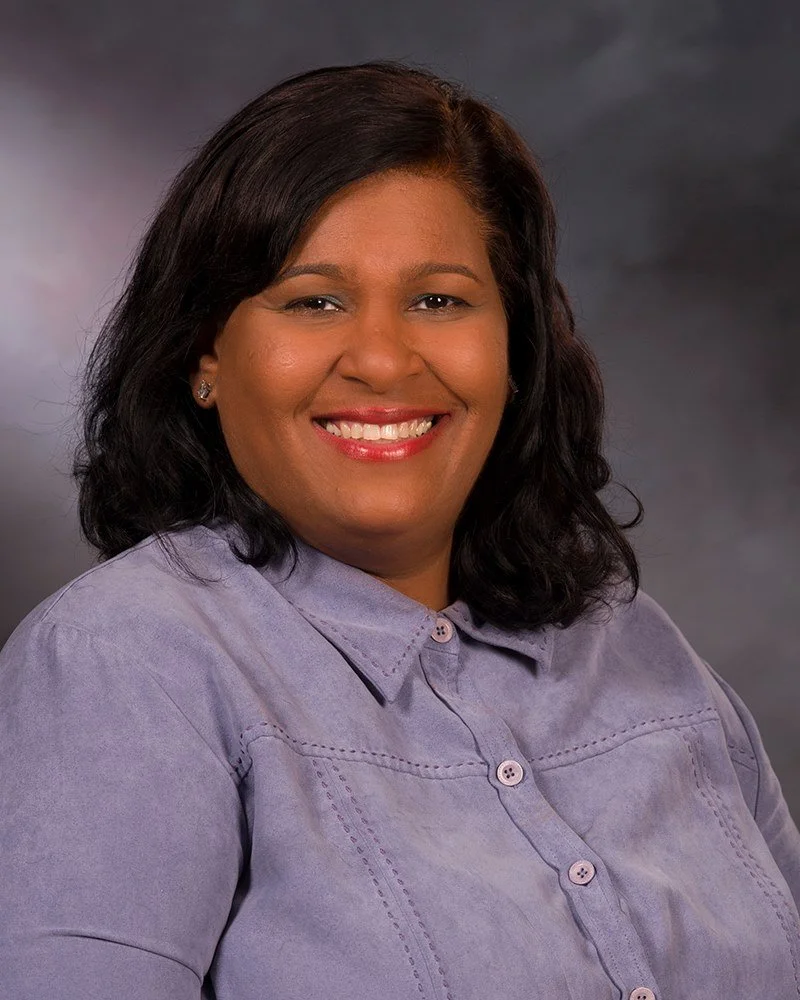Epilogue: The Joy of Mentoring - From Thousands of Miles Away"
(creative non-fiction)
One chilly morning, I clicked send on an email that signaled the start of one era and the end of another. My hand trembled with unease. In a flash, I switched careers and coasts, trading my job as an attorney at a big law firm in New York City for an entirely different role at an insurance company in Walnut Creek, California, about 30 minutes outside of San Francisco. New role, new industry, and a vastly new location. All at once. Given the sea change geographically and professionally, the move brought both excitement and angst. Excitement because I was embarking on an adventure, moving somewhere unfamiliar to pursue a fresh career path. Angst because of all that I was giving up.
At the time, the West Coast was largely foreign to me. I’d visited San Francisco and Los Angeles, but I had only ever lived in the Midwest and Northeast. Now I sought a new experience. A departure from the immutable, teleological, career-focused track I’d followed since middle school. The enticing exoticism of California emerged on my radar, beckoning seductively. And I responded with the eagerness of a young newlywed on their wedding night. No longer could I suppress the dogged wanderlust within me.
Especially given my stationary existence in the preceding five years. Life as an associate at a big law firm is not for the faint of heart. Nor for those who prize autonomy in how they spend their time. While I’d braved the rigors of law firm employment with generally strong results, I was profoundly ready for a career change. Somewhere within the cauldron of late nights, billable hours, and expected deportment, cornerstone pieces of me were lost. I wanted them back, posthaste. No matter the cost. The generous bounty of elite legal practice, while attractive, failed to inspire continued desire to endure the increasingly steep, sacrifice-laden climb up the hierarchy.
Instead, fulfillment took primacy. Putting aside my disillusionment with the associate grind, I also wanted more personal satisfaction from my work. And that meant doing something other than representing moneyed clients in disputes over more money. In fact, I yearned for a departure from dispute-related advocacy altogether. Collaboration, not conflict. This made government relations, my new field, especially appealing. But since litigation was all I’d ever known professionally, no employers in the New York Metro Area had been willing to take a chance on me. I’d applied for various positions over the years, never garnering interest. Then, on somewhat of a lark, I shifted my strategy and applied to roles in California, ultimately finding welcoming arms from the insurance company in Walnut Creek.
So, armed with a mix of inexperience and optimism, I ventured west like a 21st century settler – energized by the prospect of all that I could gain. I relished the career fulfillment, work-life balance, and personal (re)growth I thought the move would bring. Not to mention the better weather.
But, I also couldn’t ignore the downsides (and hence, the aforementioned angst).
First, leaving New York meant leaving New York—an incomparable city, with an endless list of things to offer. I’d dreamed of living and working there ever since childhood. As such, even as I groused about the trials of my law firm life, I always cherished the enviable surroundings in which it occurred. Toiling in the idyllic quiet of Walnut Creek would be very different from working in the cacophonic symphony of Manhattan.
Second, leaving New York meant saying goodbye to treasured friends and familiar comforts. My mom, a lifelong Michigander, cried when I told her the news of my move. With New York already a great distance from Michigan, I suspect she considered California to be impossibly far, and that she’d hardly ever see me again. A vast, impassable abyss separated the two locations, in her mind. Not a four-hour flight. Naturally, of course, her tears made me sad. Who ever wants to make their sweet mother cry?
Add to that, the fact that New York-based friends with whom I’d shared lasting memories—including some of the best nights of my adult youth—would no longer be in close proximity. Nor would the Hudson Valley. Nor, for that matter, would some of the country’s best pizza, 24/7 diners, and even 24/7 car washes(!). Nor the one-of-a-kind New York cultural milieu. These were undeniable drawbacks of the move, not easily glossed over despite my overall excitement.
And yet, I also realized that they could be readily overcome. In today’s digital world, I could keep in touch with my parents and friends across a vast distance. I’d done it before while in law school, and in the time since. Surely, I could do it again. And similarly, while I’d miss the Hudson Valley, New York’s pizza, 24/7 conveniences, and unique culture, I could manage without them, too. I’d already lived without them for over two decades.
So why the angst? Well, alongside the obvious disadvantages, I grappled with a deeper sacrifice and concomitant guilt. The kind of guilt that could only come from relinquishing something that couldn’t be readily regained. The guilt of leaving behind Michael, a high school junior whom I had recently begun mentoring.
I met Michael through Mount Vernon Star Scholars (“MVSS”), a nonprofit organization created to benefit promising high school students in Mount Vernon, New York. Mount Vernon, a city of four square miles, sits just outside New York City. It boasts beautiful homes, ethnic diversity, and an enviably commutable locale. But, like many other inner ring suburbs, Mount Vernon is also fraught with certain socioeconomic challenges—challenges which can be most apparent among its schoolchildren.
MVSS meets these challenges head-on by providing crucial resources for Mount Vernon’s high-achieving students. The organization pairs promising high school juniors with adult mentors who must have an undergraduate degree, professional success, ties to the Mount Vernon community, and an understanding of college admissions. Mentors are expected to meet with mentees regularly, take them to visit colleges, and above all, help them navigate the college application process. Michael and I met in the late summer, shortly after I signed up to be a mentor. Then, just when we had begun to develop a rapport, I moved to California for the government relations job the following January.
Mount Vernon and Walnut Creek are nearly 3,000 miles apart, separated by three time zones. Even so, Michael and I maintained our relationship. We spoke regularly via FaceTime video calls and sent frequent text messages. Also, when spring came, I traveled back to the Northeast to visit several colleges with Michael and his parent. This non-traditional approach, combined with Michael’s flexibility, allowed me to experience the joy of mentoring, even from thousands of miles away.
These days, Michael is a recent college graduate. He finished his bachelor’s degree in May 2021. Ready to change the world as a newly minted sociology scholar. I couldn’t attend his graduation ceremony, though I’m sure he must’ve beamed with pride.
As a stroke of good fortune, Michael narrowly avoided the pandemic-driven “virtual commencement” trend of 2020. Lucky him! But, as with countless other students, the COVID-19 pandemic still upended the richness of his experience. He spent much of his last two years receiving remote classroom instruction. Traditional campus activities were suspended. Classmates couldn’t gather to study or just hang out. Many suffered mentally from the isolation and other afflictions of the pandemic. Panic and uncertainty struck the world beyond. Through it all, though, Michael persevered and ultimately thrived.
His four years of college, in fact, proved transformational. Once bashful and softspoken, Michael became much more confident and outgoing. He attributed the evolution to a college course that required involuntary public speaking. Also, although the pandemic disrupted his final two years, Michael still made the most of his collegiate journey. Bearded and brawny, he studied hard, gained new friendships, achieved immense personal growth, and had fun.
By itself, that would already be a satisfying college experience. But Michael went even further. In the spirit of MVSS, he also found ways to give back. During the academic year, not only did he work part-time for Mount Vernon city government, but he served as a mentor to other students, helping to ease their transition to college life. An impressive show of selflessness for a young man who was, himself, settling in and finding his way.
Given his collegiate success, for Michael, senior year of high school might as well be ancient history. A buried relic of his adolescence. Tucked far away.
For me, on the other hand, not so much. The path that led to Michael’s storybook collegiate experience was, itself, a mini storybook. And so, although Michael has moved on, I find it worthwhile to recall not only the many lessons from his senior year of high school, but also the gripping sequence of events that transpired.
For one thing, I became a New Yorker again. After thirteen months in California, I returned to New York through an intra-company transfer. And not just anywhere in New York, but back to Mount Vernon—less than a mile away from my previous home. A cry of joy echoed from a sweet woman in Michigan as I shared the news.
It was quite a turn of events for an erstwhile nomad like me, who, beginning in the latter half of his 20s, couldn’t seem to stay in one place for more than two years. Since moving to New York in the early 2010s, I’d lived in Queens, Manhattan, and Mount Vernon; then California (again, for a year) in the latter part of the decade. With the return to Mount Vernon, however, I presumed my game of zip code hopscotch would at last end. “For once,” I thought, “I can finally establish roots somewhere as an adult.”
But why Mount Vernon? Well, unlike anywhere else I’d lived since adulthood, Mount Vernon actually felt like home. I belonged. Living there, I felt that I wasn’t just a transient observer passing through like countless others, but instead, a resident, with a real stake in the city’s future. It was my city in a way that New York City—as much as I’ve always loved it—never quite was. Sure, as someone working in New York City and living nearby, I had an interest in New York City’s affairs and I wanted New York City to continue to thrive. But practically speaking, New York City had countless caretakers looking out for its interests. An infinite, global constellation of onlookers invested in its wellbeing. Mount Vernon had far fewer. As such, my presence mattered far more.
Plus, Mount Vernon stood apart even among suburban communities surrounding New York City, particularly in Westchester County. Whereas other cities boasted cookie cutter commercialization and manicured glitz, Mount Vernon offered unique character and grit. In Mount Vernon, tree-lined streets and beautiful neighborhoods sit minutes away from railroad tracks, warehouses, and factories. There’s an uncommon juxtaposition of upper middle-class suburbia with the enduring hardscrabble, socio-economic realities of the American story. A testament to the contradictions that continue to befuddle policymakers and activists alike.
As a native Detroiter, I welcomed this dichotomy. Part of me loved the comfort and aspirational element of living near the tony Tudors and comely colonials nestled handsomely along the streetscape. It showed what I could attain through continued hard work and career success. But I also liked being in a city where relics of America’s industrial past still linger, and where reminders of the fragility and elusiveness of economic success persist. For me, the factories and warehouses served as an homage not only to a national industrial heritage often ignored, but, more pointedly, to my family’s and former neighbors’ proud contribution to that heritage. And the palpable socio-economic disparities, in plain view in some areas, hearkened to my youthful experiences amid Metro Detroit’s comparable incongruities.
Looking back now, I can better understand why some in my circle—particularly in the Northeast—might’ve considered it strange to embrace such divergent qualities. They didn’t grow up in an environment that celebrated blue collar industry. Also, today’s mainstream culture so often encourages us to seek the “security” and “convenience” of a cocoon of encircling affluence. And nowhere is that message delivered more intensely than in New York City and its surrounding environs. Yet, as I pondered my relocation from the West Coast, it all made sense to me. Mount Vernon wasn’t perfect—indeed, far from it. But, like an old friend, its imperfections, in some sense, made it more endearing.
And more inspiring. I came back to Mount Vernon to be a part of something bigger. To fulfill my commitment to Michael and MVSS. And to elevate my civic engagement, recognizing that cities benefit when concerned residents invest more of themselves, not less. The move to California had been so abrupt. Two years of deep community entrenchment cast aside in a heartbeat. After slaking my wanderlust, I suddenly longed for the familiar. Remaining in Mount Vernon—warts and all—positioned me to derive fulfillment and purpose from something other than my career or personal relationships.
Springtime in New York
It was early March when I moved back, and by then, Michael was already well on his way to college. At that point, he had been admitted to three schools via “early action” applications. These are applications students submit early in the fall, which allows for colleges to provide decisions sooner. Animated by eagerness, Michael had submitted his early action applications mostly without my help. Did it make me nervous? Sure. But I couldn’t complain too much since they were for the least selective schools on his list.
As the news arrived, I shouted with excitement when I learned of Michael’s first few acceptances. A son of immigrant parents, he was the first in his family to gain admission to a U.S. college. The embodiment of his parents’ American dream. Recognizing that, Michael and I celebrated his acceptances over the phone while I was still in California. Even from afar, I wanted to ensure he understood the significance of his achievement. The lower selectivity of the schools didn’t make Michael’s accomplishment any less praiseworthy.
Then, a few days after my return, Michael added several more acceptances to his tally. Woo-hoo! For those, I wanted to celebrate in person. No longer separated by thousands of miles, it was the least I could do. Especially given our mutual investment. I’d worked closely with him on all of his non-early action applications, so there was shared equity in the suspense about the outcomes.
Sitting across from me at our local diner for our check-in meeting, Michael grinned with pride as he showed me his newest admission letters. I couldn’t help but feel proud as well. All along, I’d told him that his hard work would pay off with acceptances to multiple selective schools. Those letters proved that I wasn’t just blowing smoke. College was indeed happening—and soon.
This didn’t mean that our work was done, however. In fact, quite the contrary.
The critical part, I explained to Michael, would be next—choosing one school out of several good options. His first major adult decision.
Sometimes students have a favorite college from the beginning. But that wasn’t the case for Michael. He liked several different universities fairly evenly, so his choice would require weighing multiple factors, winnowing down a list, and then deciding on a destination. Think: LeBron James’s 2010 “Decision” or even the TV show The Bachelor, on a much smaller scale, but no less important.
As Michael’s mentor, I absolutely wanted to help guide his decision-making by imparting wisdom from my own knowledge and experience. Yet, I also wanted the decision to be his, and not unduly influenced by what he thought I—or others—would want. So as Michael’s acceptances rolled in, I repeatedly stressed to him that while I’d do my best to advise him, he should be the decider in picking his college—not me or others. “Your family and I can give you our opinions,” I told him, “but ultimately the choice should be yours. It’s your life, and you’re the one who will attend the school—not any of us.”
Alas. If only things would have been that simple. For Michael, weighing all of the input from “us” nearly led to a breakdown. Why? Because unlike most other MVSS students, Michael had actually received substantial college guidance from both of his parents. They hadn’t gone to college in the US, but they were knowledgeable about the experience and had developed informed views about how best to pursue it. For many high schoolers, this would be a great thing, however Michael faced a unique problem—the guidance diverged.
One parent strongly encouraged Michael to pick a college away from home in order to develop more independence, while another urged—with equal conviction—that Michael remain as close to home as possible. This set the stage for constant tug of war on Michael’s conscience. And, as with any tug of war, one side was stronger. In Michael’s case, it was the appeal of being closer to home. He felt guilty even considering schools more than fifteen minutes from Mount Vernon. To venture beyond that, I sensed, meant betraying those closest to him and dislodging himself from certain inviolable cultural moorings. Practically speaking, it also meant he’d close himself off to educational opportunities at several excellent schools. Recognizing how limiting and detrimental that could be, I tried to push back and emphasize the benefits of going to school farther away. But to no avail. Michael preferred to spend his college years in Mount Vernon’s backyard. Period.
As a result, Fordham University, a mere fifteen minutes from Michael’s home, became both the frontrunner college choice and the first school that Michael visited through an admitted students program. On a blustery March morning, I joined him for the visit, along with one of his parents. Strolling around campus, all three of us freely acknowledged that Fordham was a terrific option. But it came with one glaring and unavoidable downside—cost. Michael’s family did not have the luxury of considering the various college options irrespective of their expense. Few families do, after all. And even with Michael planning to commute to campus from his parents’ home, Fordham’s cost far exceeded that of the other schools to which Michael had been admitted.
The reality of this proved hugely disappointing to Michael. During the admitted students program, he and his parent met with a Fordham financial aid advisor. Michael’s parent asked the advisor what could be done to make Fordham more affordable. Much to everyone’s dismay, though, few options existed. Because they were solidly middle class—neither wealthy enough to easily afford Fordham’s hefty price tag nor impecunious enough to qualify for large grants—attending Fordham would mean sizable student loans for Michael and/or his parents. Hearing this, Michael’s parent vocally objected to anyone in the family being saddled with significant debts. And understandably so. Many other parents, no doubt, have voiced the same objection when facing a similar dilemma.
But, for all of its wisdom, the objection to incurring burdensome debt offered little solace for the psyche of a 17-year-old. Michael grew crestfallen and silent. His optimism toward attending Fordham dimmed sharply as the meeting progressed. Few things hurt more than having a big dream that’s on the precipice of realization suddenly disintegrate back into the realm of imagination. Or even worse—impossibility. Afterward I offered him words of encouragement, remembering myself in a similar situation years ago.
As a high school junior, I visited the University of Pennsylvania (“Penn”) with my parents. At the time, I loved everything about the school. The beautiful campus. The culture. Heck, even the unusual mascot (the Quakers). So I became similarly despondent when I learned what its financial impact would likely be for a middle-class family like ours. Two words: large loans. My dad, like Michael’s parent, balked at the cost. In the end, daunted by Penn’s price tag, and how it would affect me or my parents, I never even applied. Instead, I went to the University of Michigan as an in-state student with a full-tuition academic scholarship, and then on to Harvard Law School. There’s probably a bigger commentary to be made about the message of upward mobility through education, and how many middle-class dreams are dashed upon the reality of sticker shock from the cost of higher education. Or, those whose dreams aren’t dashed, but plunged into the depths of burdensome student loans, resulting in a panoply of downstream consequences. But that isn’t the focus here.
Remembering my good fortune, I reassured Michael that everything would be ok. Plenty of students from middle-class backgrounds obtain a college education through affordable means, maximize the experience, and go on to live happily ever after. His situation would be no different, I assured. As part of making his first big adult decision, he had to face one of the harsh truths of adult life—that everything comes at a cost. It’s rarely fun to confront that reality, but doing so is important, nonetheless. Right? Right.
Still, deep down, part of me continued to wonder if everything actually would be ok. Given the unexpected geographic limitation placed on his college options, the intensity of Michael’s familial pressure still loomed as a major concern.
Enter, the Nutmeg State.
With Fordham in the rearview, Michael turned his attention to the University of Connecticut (“UConn”), where he’d also been admitted. UConn offered its own accepted students program, which Michael, his parent, and I attended together. From the start, the contrasts with Fordham were apparent.
For one thing, Storrs, Connecticut is slightly over two hours from Mount Vernon, so commuting would not be an option at UConn. Michael would have to live on campus. Independence development? Check. Then there was the campus itself. UConn’s rolling hills and expansive, verdant environs were a far cry from the more compact, urban surroundings of Fordham’s campus in the Bronx.
These different environments served to frame the different experiences each school promised its students. Fordham touted the appeal of being a college student in massive New York City, with its infinite enticements for students and non-students alike. UConn, on the other hand, emphasized the allure of being a college student in a quaint college town. In Storrs, scholastic pursuits would almost assuredly be Michael’s raison d’être, not a potential afterthought.
Additionally, the schools diverged greatly with regard to Michael’s second most important concern—cost. In a surprising turn, UConn, a public university, offered Michael, an out-of-state-student, a generous scholarship. So generous, in fact, that UConn, to that point, was far and away the most affordable of the several competitive schools to which Michael was admitted.
Michael, for his part, appeared to reciprocate the interest. Driving home that evening, it was as if his gloom had given way to glee. He spoke glowingly about UConn’s academics, campus, student life, and how much he enjoyed his visit. Also, UConn’s distance from home seemed to be a non-issue, which I considered a stunning breakthrough. The stubborn clouds of guilt that previously dampened his enthusiasm toward any school besides Fordham, had finally cleared. Michael not only understood that it would be ok to venture beyond Mount Vernon’s backyard for his education, but he actually wanted to.
Because I’d pushed Michael to open his mind to schools farther from home, I was delighted. It was a miracle! UConn, through its combination of academics, campus life, generous financial aid, and unlimited meals in campus dining halls(!), had sprung into first place in Michael’s book. A UConn Husky, he would soon be.
Or not.
The next two weeks were uneventful, besides a swell of rejections from Ivy League colleges. In a tough blow to Michael, they all seemed to come on the same day. I gave Michael some uplifting plaudits, but he didn’t need them. With a dash of Mount Vernon-bred grit, he took the rejection in stride, focusing instead on the doors opened to him, not the ones that had closed. By that time, in my estimation, his—and his family’s—decision was made. With no other school—besides Syracuse, which was too far—offering a comparable financial aid award, UConn was still the clear winner.
Then one afternoon I received a startling call from one of Michael’s parents. I learned that Michael had spoken with a counselor at school and became very distraught about his college decision. He was on the verge of a meltdown, although that wasn’t even the worst part.
Michael’s parent also explained that despite Michael’s enthusiasm for UConn, certain family members felt that it was too far away. Gulp. But not only that. Because Fordham was not affordable, the other family members—and to my shock, Michael himself!—settled on an inexpensive, but far less selective, local school. So no UConn. No Fordham. And no school befitting the caliber of student that Michael was. Instead, a school of much lesser caliber—one which no previous MVSS mentees had ever seriously considered. Not one. After nearly eighteen months of pushing Michael to believe in himself, dream big, and embrace a world beyond Mount Vernon, the news was a kick in the gut. The family’s opposition to UConn seemed entirely wrong.
Now, in fairness, I may have been a little hard on the local school, looking back. For many students, going there is an excellent opportunity. But it wasn’t the right fit for Michael. He didn’t require a program like MVSS to get in there. Just his parents’ credit card and the wherewithal to complete the application. As a strong performer academically, Michael needed to be challenged. Attending that school would be too growth-limiting, given its lack of rigor. And with the blessing of one of his parents, I would try my hardest to stop it.
Later that week, Michael and I met at our local diner. Eating greasy food seemed like a good way to achieve a breakthrough. Or just bridge a divide. Sensing that this would be a tough conversation, I tried to disarm Michael with lighthearted small talk. How ’bout those Knicks? But contrary to my expectations, he didn’t take the bait. Or the greasy food. Instead, like a boss delivering a pink slip, Michael avoided eye contact and dove right in. He had suddenly had an “epiphany” that the local school was the best school for him. It offered him a substantial scholarship, essentially in the same ballpark as UConn’s. (Which, again, was nothing to sneeze at.) And that generous aid, combined with the money he’d save by commuting from his parents’ home, rendered the local school the best choice overall. In terms of finances, it would burden him the least.
“Fair enough,” I acknowledged, trying to remain easygoing. These were valid points, and I couldn’t deny that he’d put forth a cogent, defensible rationale.
Internally, however, I bristled at the idea of not weighing other considerations besides cost. In life, the cheapest option often comes with severe drawbacks. I’d learned that the hard way over the years. Including by amassing a small graveyard of failed, off-brand electronic devices. But I wanted Michael to feel heard, and to make his strongest case for the local school before I pushed back. Objecting from the outset would only steel his resolve.
So, after listening to Michael’s perspective a bit more, I calmly asked about the one area where I knew that UConn was head and shoulders above the local school—academics. In that regard, they didn’t compare. And like a wise sensei, I marveled silently at my turn of conversational jujitsu, patting myself on the back.
This was it. There was no way he’d have a good answer. Zero chance. “Here comes the breakthrough,” I snickered to myself. Assuming I’d fired the silver bullet, I smiled smugly as I waited for Michael’s reply.
To my surprise, though, he was nonplussed. He admitted that the local school’s academics were not on par with UConn, but reasoned that the school offered certain specialized programs that would help nurture his talents. Boom! I wasn’t expecting such a clever response. And for once, I, the supposed font of wisdom, was momentarily speechless. Take that, Mr. Harvard Law-educated Mentor.
Sitting across from Michael, I tried to peer into his eyes to detect any glint of hesitation. I knew that he was merely parroting what certain family members pressed him to say, poker face and clever response notwithstanding. Yet as much as I searched patiently for any indication of ambivalence, I could find none. “Who is this kid?” I thought to myself. “What happened to Michael the overachiever? Michael the big dreamer?” After a year and a half of mentoring him, the most crucial part of the process—his college choice—was turning into a nightmare.
I’d been patient in hearing him out. Now it was my turn to attack and convince. I took a deep breath and proceeded to draw upon every persuasive and rhetorical technique I’d gleaned from law school, my years as a litigator, and my role as a corporate lobbyist. I threw the proverbial kitchen sink of considerations at him. The better college experience at UConn. A more fun campus. Greater freedom and independence. The bigger breadth of learning opportunities. More robust preparation for graduate school. The stronger alumni network. But none of it mattered. Michael’s mind, unfortunately, was made up. A UConn Husky or Fordham Ram, he would not be. And, in my most crucial mentoring moment, I had failed him.
The Final Twist
A week or so went by. On a warm April evening, with the sun fading, I strolled to the front of the two-family house where I lived, eager to get inside after a long day. My landlord, a petite woman with an ever-friendly demeanor, stood nearby in the front yard, tending to her garden. “Have you heard from Michael?” She called out as I walked by. I paused. “No. What happened?” I said. She lifted her gaze from the garden and smiled. “Oh. Well, he should have received his updated award letter today. We were able to get him a lot more money. Hopefully it helps,” she added. “Really? That’s great,” I replied, silently trying to decipher what “a lot” meant in real dollars and cents. “Yeah, he can go to Fordham for practically nothing,” she explained. A flash of adrenaline shot through me as I thanked her profusely and opened the door to head inside.
Before I could reach my living room couch, my cell phone rang with an excited call from Michael’s parent. Just as my landlord mentioned, Fordham had come through—and in a huge way. They offered Michael an updated financial aid package that dwarfed their original offer and UConn’s. Fordham, the original frontrunner, was now reasonably affordable for Michael and his family. Yes!
With the news of the financial aid award, the family division dissolved immediately. Neither parent could object to Michael attending a school of Fordham’s caliber for a readily affordable cost. Mercifully, the tug of war ended with a win for both sides.
As soon as I finished chatting with his parent, my phone buzzed with a text message from Michael. He, too, was ecstatic. The distress from a couple of weeks ago was long gone, replaced with pure joy. Smiling at the thought of multiple champagne corks popping in Michael’s house, a sense of relief swept over me, too. “Phew! Disaster averted,” I thought to myself. A Fordham Ram, Michael would soon be.
So how did it happen? On its face, a combination of simple luck, my landlord’s generosity, and civic selflessness—one Mount Vernonite looking out for another. On a deeper level, some might say it was fate.
Unknown to me initially, my landlord happened to be a Fordham employee. Around the time that I moved in, I casually mentioned to her that I was mentoring a local student in the MVSS program who really liked Fordham. I also explained that his family could not afford Fordham, even with the financial aid offer they received. From there, purely out of the goodness of her heart, my landlord took over.
She arranged the on-campus meeting with Michael, Michael’s parent, and a financial aid advisor, who asked for additional information regarding the family’s financial need. This was the same meeting from which Michael emerged disappointed after hearing about the reality of Fordham’s cost. Following that meeting, nothing—not even a nominal increase in aid—was promised to Michael or his family. Submitting additional information only meant getting a “second look at the family’s situation,” not special treatment. So Fordham reviewed Michael’s family’s financial information just as exhaustively as they would have that of any other family who requested a second look. But my landlord made all the difference. By advocating for Michael, she was able to eke out a much larger financial aid award. And, in doing so, she helped open the door to a brighter future for him.
So where does fate come in?
For starters, this outcome probably never would have occurred had I moved back to Mount Vernon at any different time or to any different home. For example, if I’d moved even a month later, it’s doubtful that I would have ever met my current landlord, let alone had the casual conversation with her about Michael. Maybe he would have found another path to Fordham, but it likely would have been littered with loans. Also, consider that that Michael is the same young man who, as a toddler, cried inconsolably on the morning of 9/11 and made his dad miss a meeting on one of the upper floors of the World Trade Center—a meeting whose attendees all perished. With that in mind, it’s not too farfetched to think that some measure of cosmic intervention was at play.
After the joyous April night, a month passed seemingly in the blink of an eye. June arrived, and on one overcast evening I attended Michael’s graduation ceremony. Although they received only four tickets, Michael’s family was kind enough to invite me. Sitting amid the packed audience, familial pride filled the cavernous auditorium. Then, as Michael strode across the stage to collect his diploma, I felt goosebumps form when the school administrator called his name. There he was, my mentee, finished with high school. With a few steps across the auditorium stage, he’d moved on to the next stage of life.
Things hadn’t been perfect, to be sure. Even after the tumultuous college selection saga, I mounted a last-minute effort to persuade Michael to live on campus at Fordham instead of commuting from his parents’ home. It didn’t work, and I would point to that failure as my biggest shortcoming as Michael’s mentor, besides not establishing agreement early on about the importance of attending college somewhere beyond a 15-minute radius from home. By living with his parents, he had a different college experience than I would’ve advised. But again, as a mentor, one can only do just that—advise. The mentee and their parents are the ultimate deciders. Accepting their choices can sometimes be tough, but it’s a necessary part of the mentoring endeavor.
Also, although it’s largely come to be a baseline expectation for the college experience at most selective schools, living on campus is still a privilege. One that comes at significant financial cost. I’d been privileged enough to enjoy four years on campus, but that’s not a realistic option for everyone. I was aware of this in a theoretical sense, but Michael’s experience revealed my own bias by reminding me that there’s no one-size-fits-all approach to on-campus or off-campus residency. While I’d still argue that those who desire to live on campus ought to have that experience, I can now better appreciate that living with parents off campus is better for some students—for a host of reasons.
As for Michael, time will tell how Michael’s housing decision impacted his personal development and experience at Fordham, but I would venture that everything turned out fine. Especially considering that the COVID-19 pandemic probably would’ve forced him to live with his parents off campus for his last two years of college anyway.
So, in hindsight, I can only respect his thought process. He concluded that—for a number of reasons—commuting from his parents’ home was best for him. I may have disagreed, but that’s precisely the type of confident, independent, critical thinking that I’d hoped to foster as Michael’s mentor—the thinking of a burgeoning adult. Growing up as the youngest of three children, a small part of me always imagined what it would’ve been like to have a younger brother to advise and encourage. I’d like to think that I have that in Michael now. And even as he grows older and more independent minded, I hope that he does, too.
The New Class
Toward the middle of the summer after his senior year of high school, Michael went to Florida to visit relatives. A graduation gift from his parents, the trip gave him the chance to bond with family and enjoy a rejuvenating respite from academics. He needed it. The full brunt of Fordham’s Jesuit rigor awaited in the fall, after all. In the end, however, Michael was more than ready.
And so were Michael’s classmates from MVSS. As Michael settled into Fordham’s Rose Hill campus, they headed off to Carnegie Mellon, Lehigh University, and Ithaca College – all with generous scholarships. As a testament to their scholastic achievements, though, they were actually accepted to many more colleges, including UC-Berkeley, Barnard, and UCLA. Like the MVSS students before them, they set the bar high for the students who followed. And their legacy of achievement continues to inspire subsequent MVSS students to not only dream big, but also believe that those big dreams can come true.
Finally, some may wonder what else awaited me in the years since my return to Mount Vernon. Well, given how rewarding it was to mentor Michael, I decided to step up my involvement in MVSS. Following my move back, I joined the board of directors, and I volunteered to mentor another MVSS student, a bright young man named Andre.
Like Michael’s journey, the saga with Andre was similarly feelgood in outcome. The son of Jamaican immigrants, Andre possessed a razor-sharp mind, exceptional academic ability, and an indefatigable work ethic. He combined these qualities with the resources made available to him and achieved outstanding results.
As one example, at the time that he joined MVSS, Andre had already exhibited strong standardized test performance. But that wasn’t enough. He used the SAT tutoring that MVSS provides to propel himself to another level, ultimately earning a score in a rarefied percentile.
This elite standardized test performance put him on the radar of numerous elite colleges. Then, under my tutelage, he embarked upon an educational gauntlet which rendered him a virtually irresistible college applicant. During the summer between his junior and senior year of high school, he participated in four pre-college enrichment programs, all in STEM-related fields.
The subjects included engineering, medicine, and coding. An academic murderer’s row for many people. But not for Andre. He excelled in each of them.
Did he have a favorite? I’m not sure. Somehow the programs seemed to be uniformly enjoyable despite their disparate subject matter.
Still, one thing was undeniably clear. The medical program proved most meaningful. By far. It made sense, given Andre’s dream of becoming a doctor. He felt like it gave him a glimpse of his future. But there was also a funny dissonance to it all.
Brimming with confidence, Andre normally exuded the disaffected coolness of a consummate teenager. Rarely did he show strong emotion. Therefore, I couldn’t help but chuckle at his unbridled giddiness in recounting the medical procedures he performed on dummies. Or the conversations with physicians about their career journeys. The inspiration was palpable. Coolness be damned.
Yet Andre also felt equally at home in studying coding. He took to it like a fish in water. So much so that the coding program’s owner invited Andre back to continue his learning while also teaching other students how to code. This, too, only after Andre’s inaugural foray into the subject.
Receiving the news, I was thrilled. This would be an obvious double-whammy on the college application front. But the story gets even better.
In a show of altruism, the coding camp’s owner also extended an invitation to Andre’s younger brother to join in the learning. Free of charge.
A welcome surprise, and a towering gesture, considering the circumstances. Although run by a nonprofit, the coding program was costly. It primarily attracted students from Westchester County’s wealthier communities. Not many who looked like Andre or his brother. Nor were from Mount Vernon or areas nearby.
Funding wasn’t an issue for Andre because MVSS covered his participation. But Andre’s brother was not part of MVSS and his family didn’t have the means to pay. Which is where the camp’s owner stepped in. Recognizing the larger challenge of educational equity, he used his platform to make an enormous impact on Andre’s family. By waiving the fee, he waved Andre’s brother toward valuable knowledge. Completely of his own volition. And I have no doubt that it’ll pay off down the line.
So, too, of course, will the wealth of new experiences to which Andre gained exposure that summer. Including commercial air travel and navigating the Midwest. One engineering program took place in Ohio, which enabled Andre to not only fly on an airplane for the first time, but also to explore a different part of the country and meet students from other areas. An experience unfamiliar to Andre, as well as many of his peers.
Sitting near the runway at LaGuardia Airport, Andre texted me with excitement as his hour-long flight awaited takeoff. Departing LaGuardia, after all, is always grounds for good cheer. (Just ask President Biden.) But, it’s even better when your first-ever flight is to somewhere that broadens your horizons. I thought back to my early days of flying, visiting my sister in Chicago. Although only a 45-minute flight from Detroit, the city seemed worlds away in comparative grandeur. And with knowing smile, I responded with equal enthusiasm to Andre’s text. Up, up, and away!
In addition to cheering on his aeronautical adventures, I also applauded Andre’s enthusiasm for learning. As with Michael, he would be the first in his family to attend college in the U.S., and I knew the trip to Ohio was just a small step in a long academic journey toward medical school. To support Andre in his journey, I bought him a set of luggage to use, remembering what a useful gift that had been to me from my parents as I left for college. So useful, in fact, that I still travel with it today.
A Smooth Landing
By the end of his summer gauntlet, awash in enrichment—and perhaps of skosh of mild sleep deprivation by teenage standards—Andre emerged ablaze with eagerness to complete his college applications. And apply we did. In total, Andre applied to roughly fifteen colleges. A lot, for sure.
Because of his family’s financial background, he qualified for application fee waivers. This enabled him to target a broader array of schools than I would ordinarily have advised. But it paid off.
Andre gained admission to a cornucopia of outstanding colleges, typically with full scholarships. Only the two of the most persnickety colleges—Brown University and Dartmouth—rejected him outright. Yet he’d been accepted to so many others that it hardly mattered. Denying him was their loss.
As the options solidified and he narrowed his choices, an undeniable leader emerged—Washington University in St. Louis, home of the Bears. A terrific school. In an affordable city. With a great pre-med program.
Once admitted, Andre visited and loved it. They also gave him enormous financial aid.
For many reasons, it would’ve been a perfect fit. And had it not been for one other school on his list, he almost certainly would’ve gone there. But that one other school—Columbia University—happened to be Ivy League and the flagship institution in his extended hometown, if not the entire State of New York.
Columbia directed Andre through a circuitous process that featured additional interviews, a wait list, and the opportunity to submit an update essay. I ushered him through these procedures, coaching him relentlessly and providing other resources needed to stand out among elite competition. We met at a nearby Starbucks to prepare for interviews, practicing for hours. I also bought him a suit to wear to his interviews, along with a leather portfolio. Knowing firsthand how much appearances matter—particularly for young black men in environments of exclusivity—I wanted him to not only speak with polish, but to exude it in his sartorial choices and overall presentation.
Fortunately, it all worked. Andre was admitted to Columbia’s School of Engineering with complete financial aid, and a swell of motherly elation that reached the heavens. Her baby would attend one of the most prestigious universities in the world, close to home, and with no debt in doing so. A dream scenario, unequivocally. Speaking on the phone after learning of Andre’s admission, she thanked me profusely. I smiled, recalling the celebratory phone call with Michael’s parents on a similarly warm, spring evening just a couple of years prior. The joy of mentoring, manifested yet again.
Final Reflections
I wish I could say that smiles and joy have infused the entirety of my mentoring experience. But that would be inaccurate and a disservice to the illuminating nuance of the endeavor.
How so?
Well, on a surface level, I would point to examples of Michael’s family being at loggerheads as his college choice hung in the balance, or the times that Andre’s teenage flippancy reared its head.
On a deeper level, I would highlight the many larger societal issues laid bare by mentoring—especially in an environment like Mount Vernon’s—and my inability to solve them. Among these issues, for instance, are things like racial economic disparities, educational inequity, rigid cultural norms, paternal absenteeism, the high cost of higher education, and even unforgiving immigration policy. The last example stemmed most directly from Stewart (using a pseudonym), a bright mentee whom I met immediately after Andre.
Although Stewart would’ve had a similarly bountiful academic future, he withdrew from the MVSS program due to his immigration status. Stewart had been brought to the US at a young age by older family members, and despite having superb standardized test scores and stellar grades, he recoiled from higher education because he worried about being deported. And while I was disappointed, I couldn’t blame him. Given the Trump Administration’s messaging about immigration, I might’ve made the same choice, had I been in his shoes.
And yet, mentoring, for me, has been more than performing acts of benevolence amid surface-level hardship, or examining the manifold forces and challenges that circumscribe our lives. Instead, it’s been, in a sense, welding together new offshoots of my familial branch—all through the crucible of a painstaking, but ultimately rewarding journey through the college admissions process. If that sounds like sappy hyperbole, I get it. I may not have envisioned mentoring being that at the start, but I now realize that is what it’s become. And that realization has come as much through tragedy as through triumph.
Roughly six months after my return from California, I got married in a ceremony in—where else?—New York. Fresh off the triumphant move back, wedding in New York City seemed all too fitting. The happiest day of my life. In the same city where I’d met my wife. Consummating my adulthood at the epicenter of my childhood dreams. In fact, the wedding’s expense almost seemed a rightful penance for decamping for the mirage of greener pastures the year before. Almost.
Admittedly, I don’t have a ton of specific memories of the reception that evening. My exuberance (not the bourbon-laden open bar) got the better of me. But I do recall greeting Andre, Michael, and their parents warmly. Over the past few years, they’d become almost as much apart of my of my life as my biological family. And I appreciated that they came. On the only day I assembled with a handpicked group of family and friends to celebrate my matrimony, it felt right having them (and my friendly landlord) there. We were a small group of Mount Vernonites, engorged with the ebullience of a much larger one.
Then, about fifteen months later, I left Mount Vernon. This time, not for California, but for the neighboring state of New Jersey. And a city about an hour away. Far from the grit that had once drawn me back to Mount Vernon, and instead flush with the stunning vistas and lush peaks that recalled my stint in California. It was a drastic change, perhaps. But it hadn’t come without a scorched-earth effort to remain in Mount Vernon. As apartment life grew tiresome and we wanted more space, my wife and I crisscrossed Mount Vernon’s Fleetwood neighborhood in search of a house. Unfortunately, none were affordable for us—primarily because of the city’s high property taxes. New Jersey, by contrast, offered a wealth of budget-friendly options in areas that were holistically desirable. In the end, despite my reticence to leave my city, I couldn’t deny the sobering truths of the cost-benefit analysis. New Jersey made more sense, and off we went.
Sharing the news with my Mount Vernon “family” proved difficult, as one might expect. I knew they’d be sad, just as I was. Moving to New Jersey and buying a house came with a sense of permanence that hadn’t been there with the California move. I wouldn’t be moving back in a year, if ever. But Michael, Andre, their families—and even my landlord—still provided words of encouragement. I wasn’t leaving their lives forever, after all. Just crossing the Hudson. We were still family, even over distance. A family which, it seemed, would soon expand.
About a year and a half later, it was my turn to share exciting news with Michael, Andre, and their families: My wife and I were expecting! A precious baby boy due in early November. We hadn’t picked out a name yet but were leaning toward making him a junior. He would be a chip off the old block. And, to say that I was over the moon—. Well, that doesn’t even begin to describe my jubilance.
It had been a long, painful road to parenthood for my wife and me. She had an unfortunate medical history which complicated her fertility and led us to attempt invitro fertilization procedures multiple times—all ending in failure. Excruciating failure. Tears flowed aplenty. Hope nearly dried up.
In the midst of the difficulty, we felt woefully disheartened. Desperate to scale a mountain whose peak we weren’t sure we’d ever reach. Every promising climb met with a corresponding tumble, plunging us further into despair.
Repeated failure to conceive is a peculiar beast. There’s an unusual isolation to the grief, as it’s typically only the aspiring “parents” who feel the loss. Few people talk about it openly as it occurs. Which breeds mild stigmatization and ostracism. Over time, I came to learn that the cycle of hope and despair that we experienced is actually common to many who’ve faced similar fertility challenges. But that didn’t make it any easier to abide.
Despite my unease, though, over the years, I’d alluded indirectly to the fertility challenges in conversations with Michael, Andre, and their parents. I wanted what they comprised – children and a family. Plus, part of me felt the need to deflect any unspoken curiosity as to why a healthy, married, mentoring man of my age didn’t have any offspring. Surely, they must’ve wondered. So, without divulging details, I hinted at the tough times that my wife and I had undergone. In response, Michael, Andre, and their parents expressed polite, hopeful sentiments as one only can in a situation like that. There wasn’t much else to say.
Against that backdrop, then, the news of our pregnancy was unquestionably a welcome revelation. A godsend, by every measure. Our son, who’d been conceived naturally, (despite doctors’ insistence upon the futility of trying) amounted to a miracle. A product of prayer. The gift of a groundswell of hope. Kicking away happily, he touched hearts before even having a full heart of his own. And I brimmed with pride and thankfulness for the long-awaited blessing. I couldn’t wait for him to meet his Mount Vernon family.
Sadly, though, he never would.
Tragedy struck just 2.5 weeks before my son’s due date. For reasons we’ll probably never uncover in our earthy lives, he passed away in my wife’s womb. There was no physical trauma that occurred. Nor any detectable genetic cause. Just an evening during which we noticed he wasn’t kicking, followed by a trip to an empty emergency room in the wee hours of the morning. I’ll never forget that awful moment I saw my beautiful son’s chest on ultrasound. His formerly strong, beating heart now motionless. Halted by an unknown malady.
Thinking about it still brings tears to my eyes. My heart broke. All of the dreams that I had for him, rendered moot in an instant. All of the love I’d yearned to pour into him, suddenly without an earthly vessel. My wife delivered him via C-section the next day and we buried him almost two weeks later. It wasn’t fair. If only I could’ve somehow breathed life into his adorable, lifeless body.
As one might expect, I spent the ensuing months ensconced in inescapable grief. I questioned my faith and the efficacy of prayer. The tinge of optimism that had always colored my outlook on life suddenly shifted to an uncompromising pessimism. And I even withdrew from my biological family, as none of them—besides my mom, who wrote me a comforting, heartfelt letter—seemed to grasp both the enormity of the pain and how bothersome it was to suffer through platitudes about how I could have another baby, the commonality of perinatal loss, God’s fidelity to the faithful, or pushing through difficulty. Although I knew it came from good intentions, I didn’t want to hear any of that. None of it eased my pain. I just wanted my son back. More than anything.
There was, however, a common thread of compassion which comforted me through the grief. A beacon in the darkness. Somewhat unexpectedly so. The compassion emanating from the Mount Vernon family which I’d built—in one way or another—through my mentoring.
It was Michael’s dad sending me words of encouragement, telling me that God saw my commitment to the students, and that it would not be in vain. He didn’t use an appeal to God to make sense of what happened, but instead assured me that God hadn’t left me, even if what happened didn’t make sense. It was Michael himself sending warm messages of kindness, saying how much he’d looked forward to being an uncle to my little boy. It was Andre, the future doctor—a protector of life—lamenting its fragility and expressing his sorrow. It was my former landlord sending a thoughtful gift of a placard with my son’s name inscribed with the message “too beautiful for earth.” And, perhaps most movingly, it was my most recent mentee, David, whom I’d only known for a month, sending me frequent messages to express his sadness and check on my wellbeing. I can’t conceive of there being a more precociously compassionate, empathetic young man. Nor will I ever forget his kindness.
But that kindness, in a sense, speaks to the familial welding to which I alluded earlier. Each of my mentees has experienced his own pain, which ultimately enabled them to empathize and circle around me in my time of tragedy. Just like a family. For Michael, it was likely the pain of his parents’ marital separation. For Andre, it was a biological father who wasn’t present, and a stepfather who passed from COVID-19. For David, it was multiple relatives dying from COVID-19.
Not to mention the immense sacrifices that all of them saw their parents make to provide for their family. Put simply, the end of their journey to college may have been storybook (or might be, for David), but that certainly wasn’t the case for the beginning or middle. All of them have confronted certain rigors of adulthood, even at a young age, and that engendered profound, prodigious understanding.
Which brings me, finally, to the present day. The pain of fall 2020 persists, albeit less acutely. But I miss my little boy as much as ever.
I also don’t know, for that matter, what the future holds in terms of whether I’ll ever be a biological parent of a living, breathing child outside the womb, the way I’d always imagined. Surely, I pray for it every night. Every single night.
Looking ahead, I haven’t given up hope. But somehow, even if it doesn’t bring total solace, I also realize that I’ve already experienced semblances of fatherhood. And not just for the eight months I spent with my baby boy.
I experienced it in those lunches with Michael, many moons ago. Telling him about the life that awaited beyond 11th grade. And I experienced it recently as Michael and I discussed his first foray into the business world and how it will prepare him for law school.
I experienced it with Andre when I shopped for a suit for him to wear for his college interviews. Knowing that he needed to be sharp. And I experienced it recently when we discussed a summer pre-med program he did, along with the travails of Ivy League scholarship.
I experienced it with David last fall as I encouraged him to buckle down for his junior year of high school. Reminding him that video games could wait until homework was done. And I experienced it recently, during our visits to the University of Albany and Union College, his eyes widened with excitement and appreciation as he walked about the campus, reminding himself that with a merely a little more work, college would soon be his reality, too.
I experienced it in numerous other moments as well, zigzagging through the ups and downs of my peripatetic journey over the last six years. Restless with curiosity, I made my own worthwhile adventures again and again.
Now fully settled, I look forward to seeing how life continues to unfold for the several young men of Mount Vernon whom I’ve had the pleasure of mentoring. We’ve become a family. And I thank them, wholeheartedly, for allowing me into their lives. For being there for me in good times and bad. For enabling me to learn just as much as I’ve taught. For giving my life purpose beyond career success and other personal relationships. For humoring my unintentional dad jokes. For indulging my bald attempts at youthful relatability, even as I creep toward middle age. For the love they showed my son, however briefly he was here.
Above all, it’s through them that I’ve experienced small pieces of fatherhood through the joy of mentoring. No matter how many miles away.
Dedicated to the memory of my son, “Steve, Jr.” Rest in peace, Baby Boy. Dad loves you.







